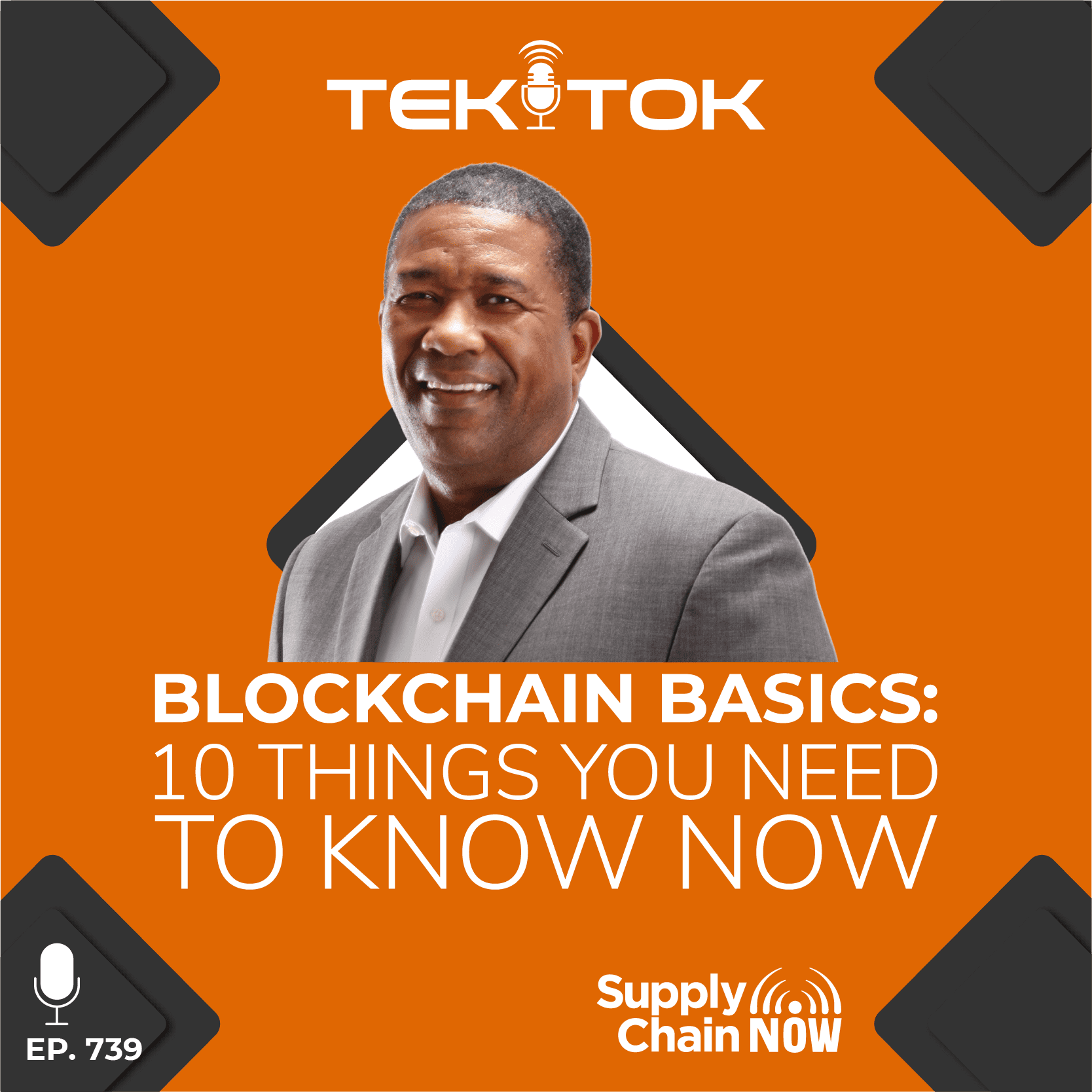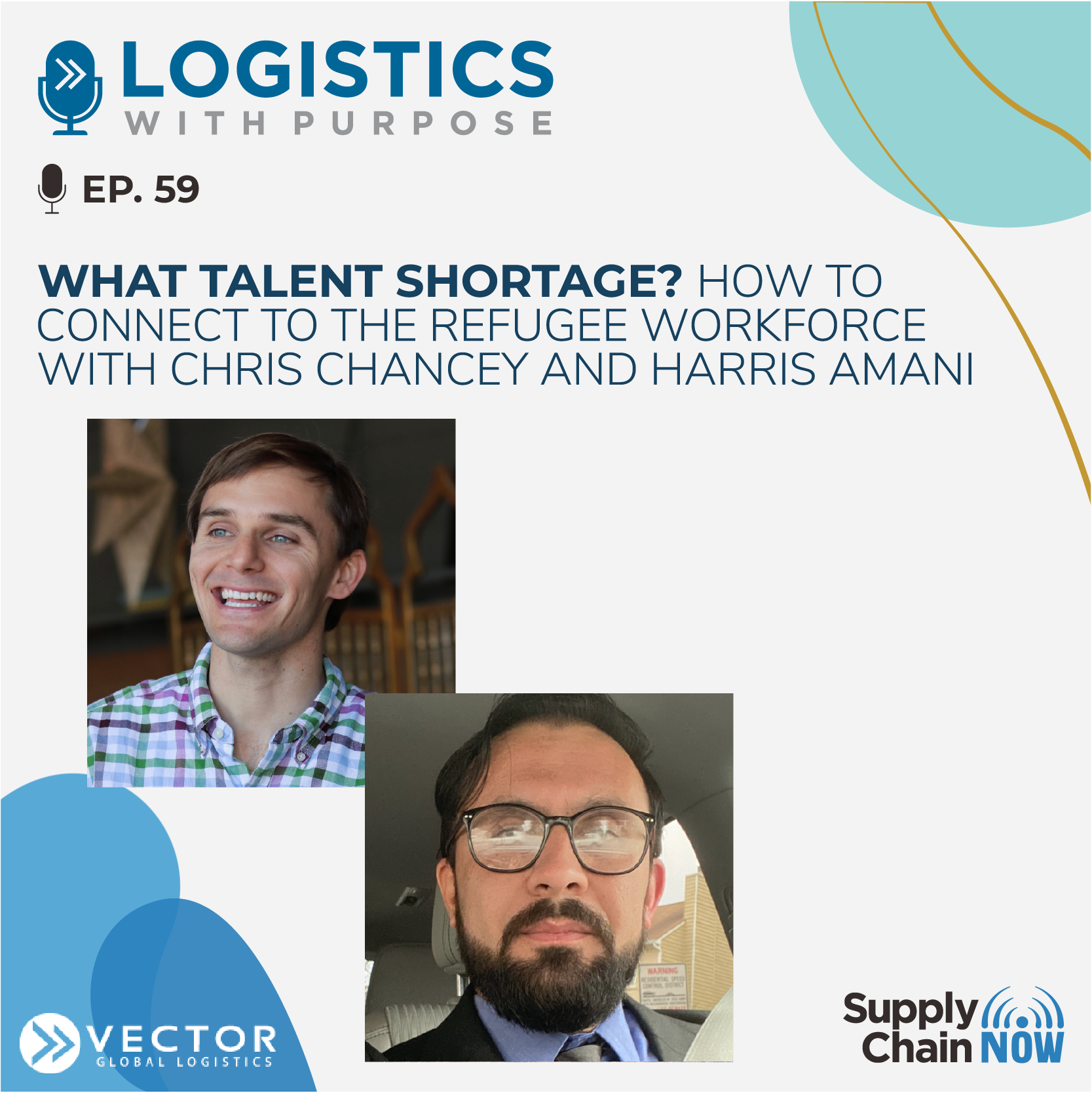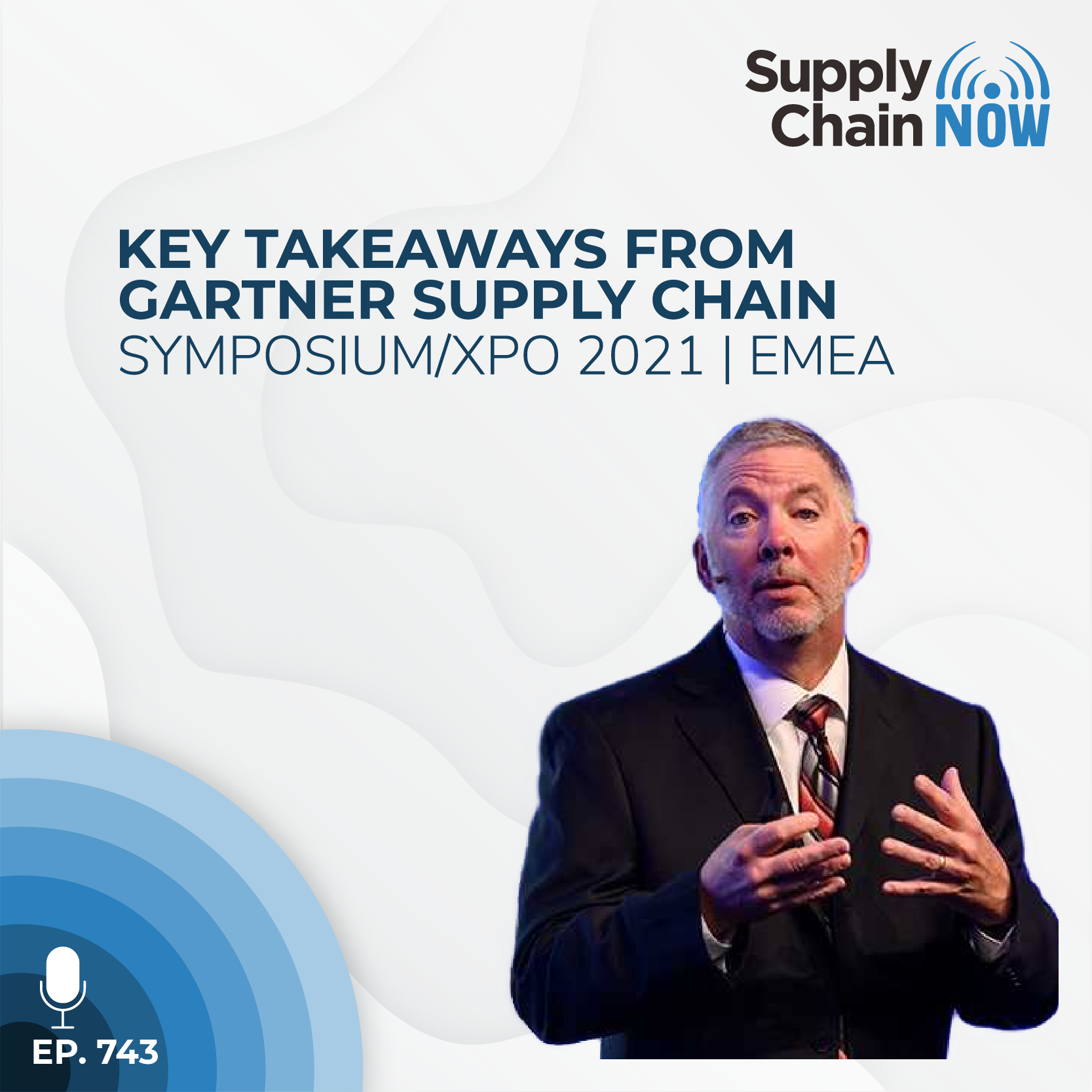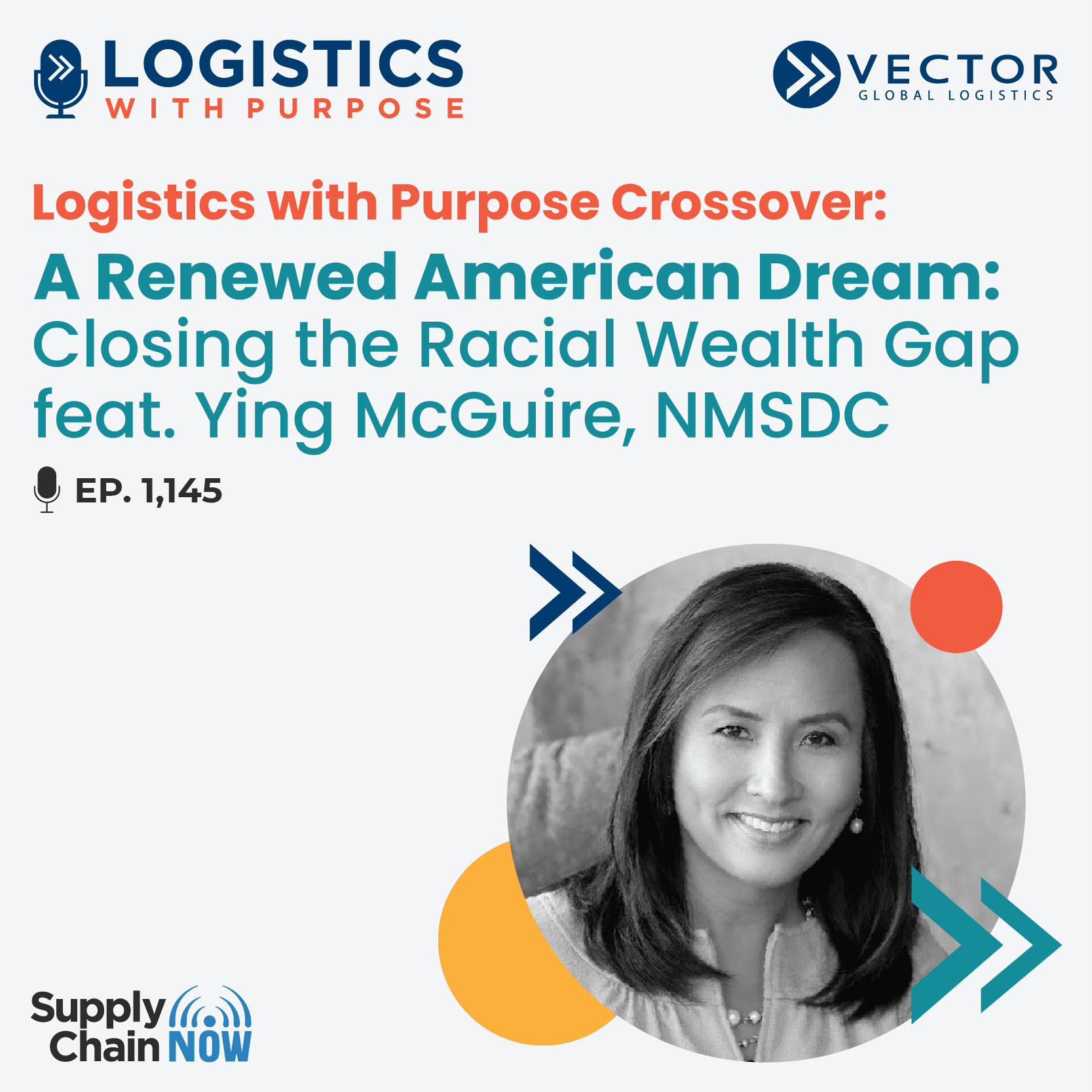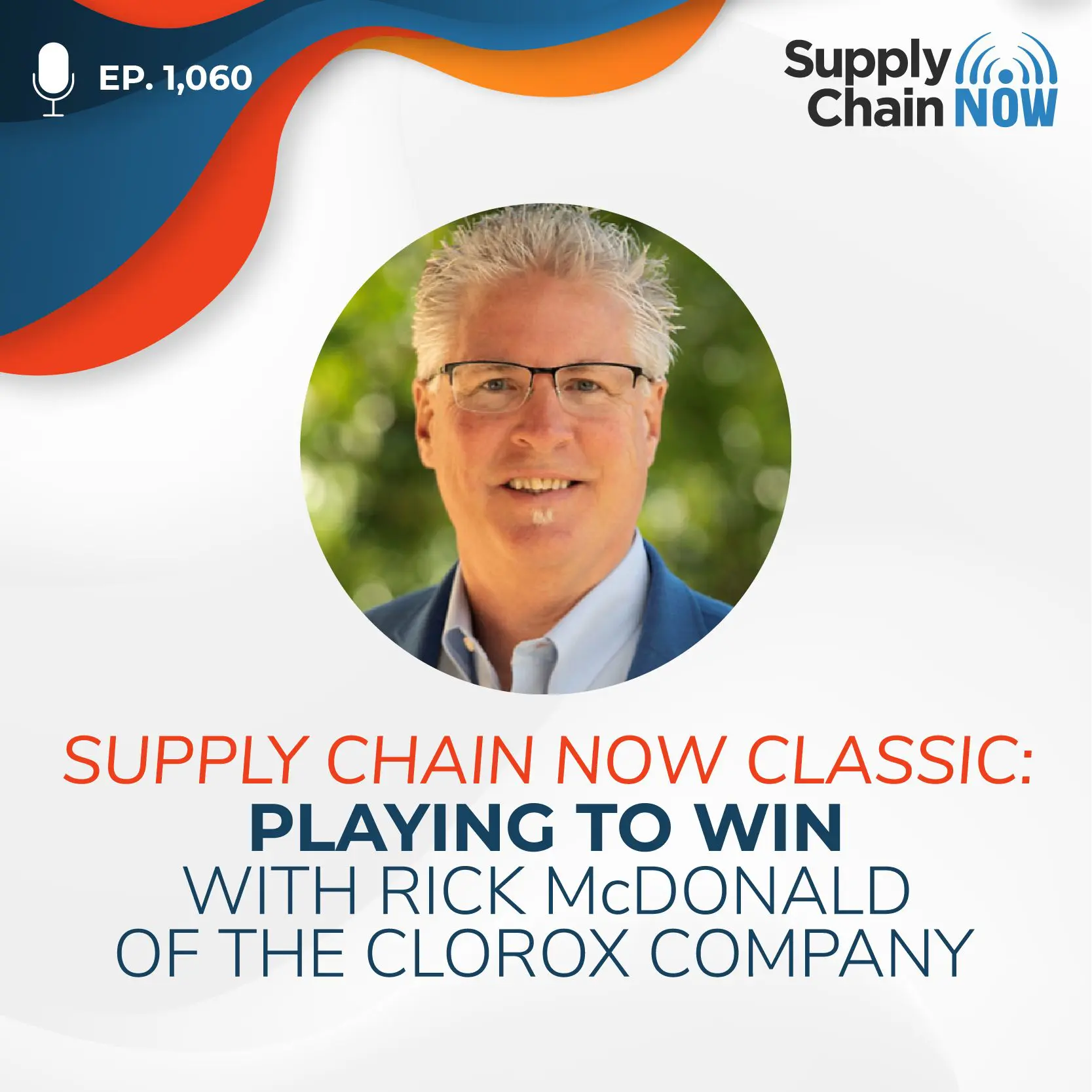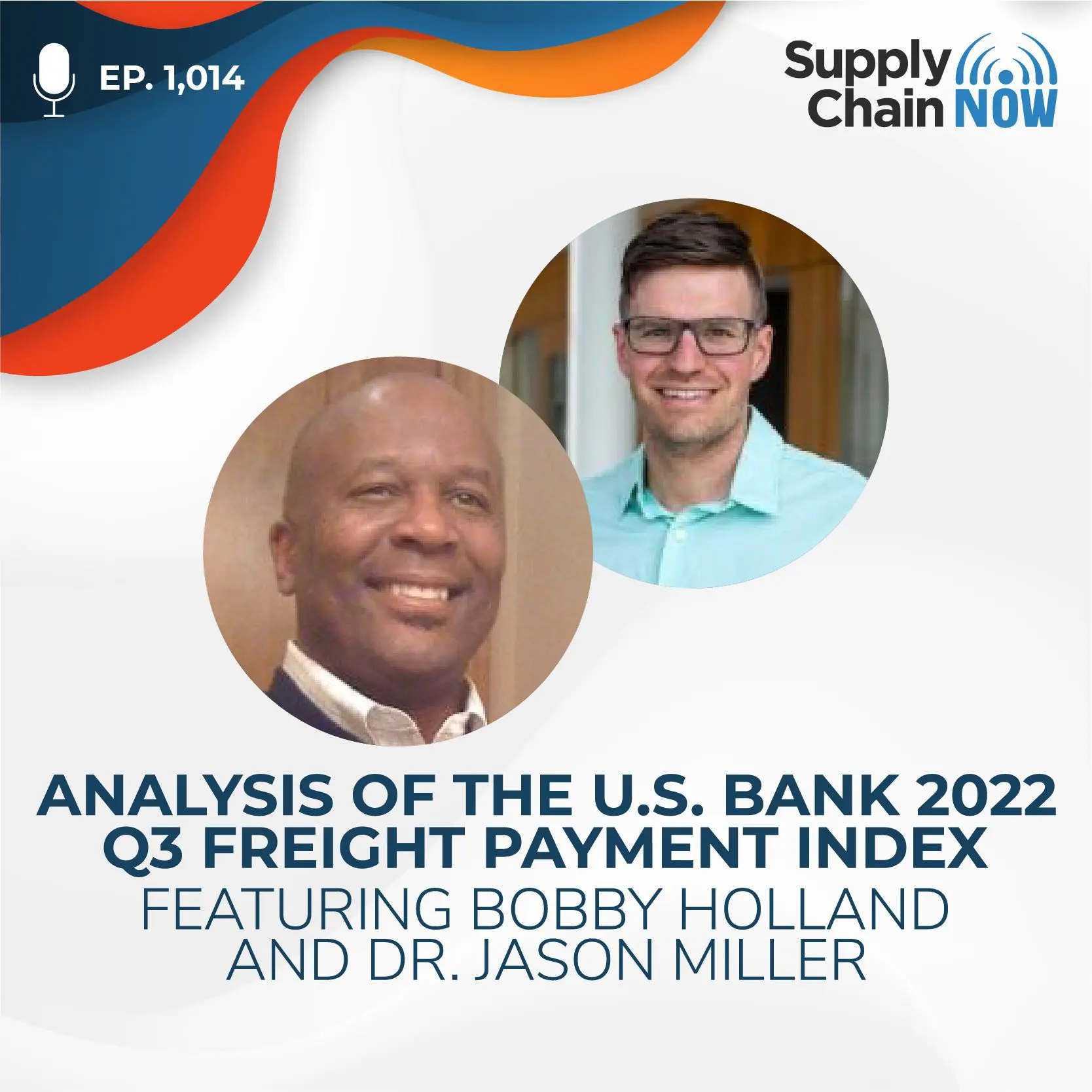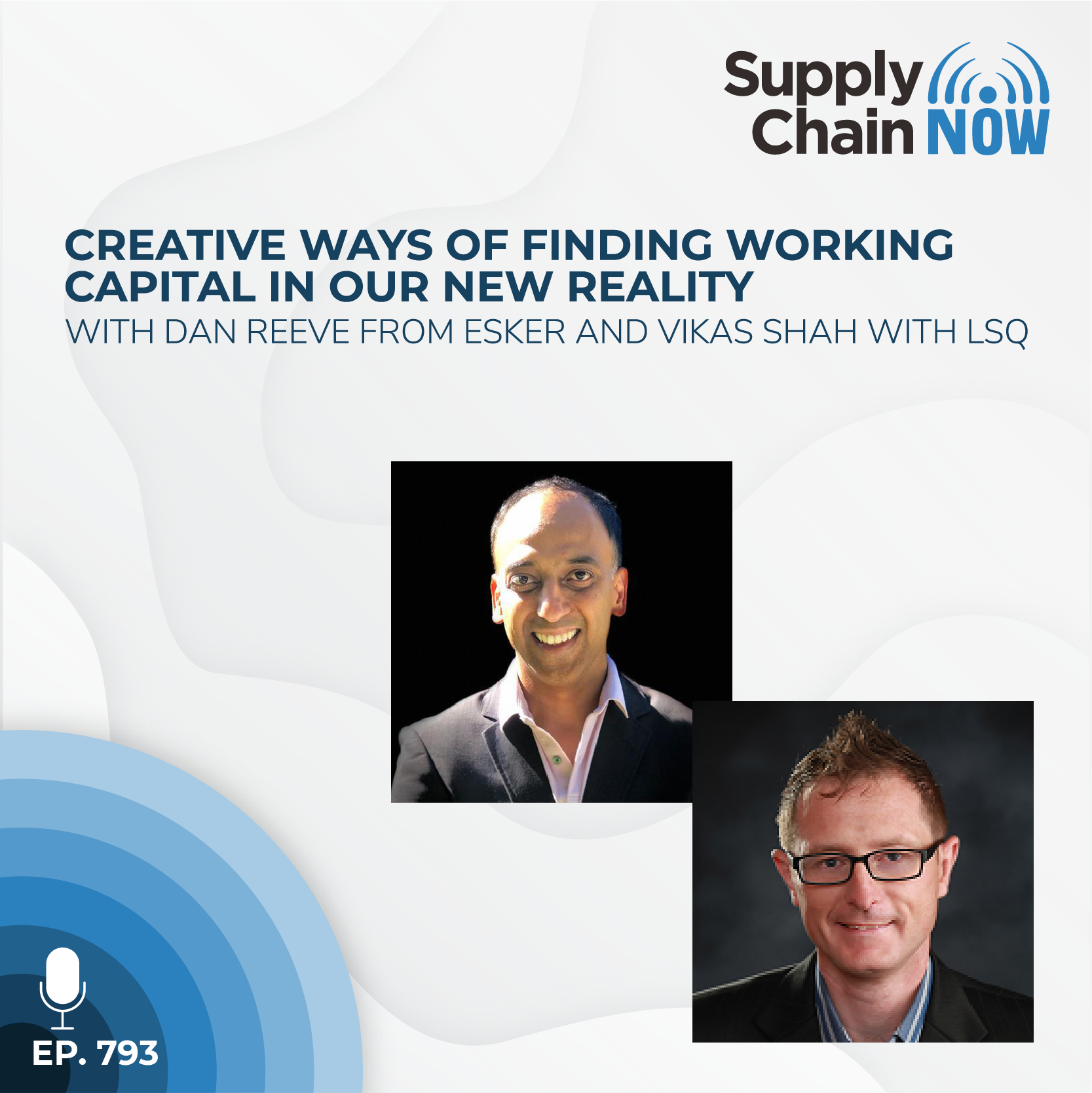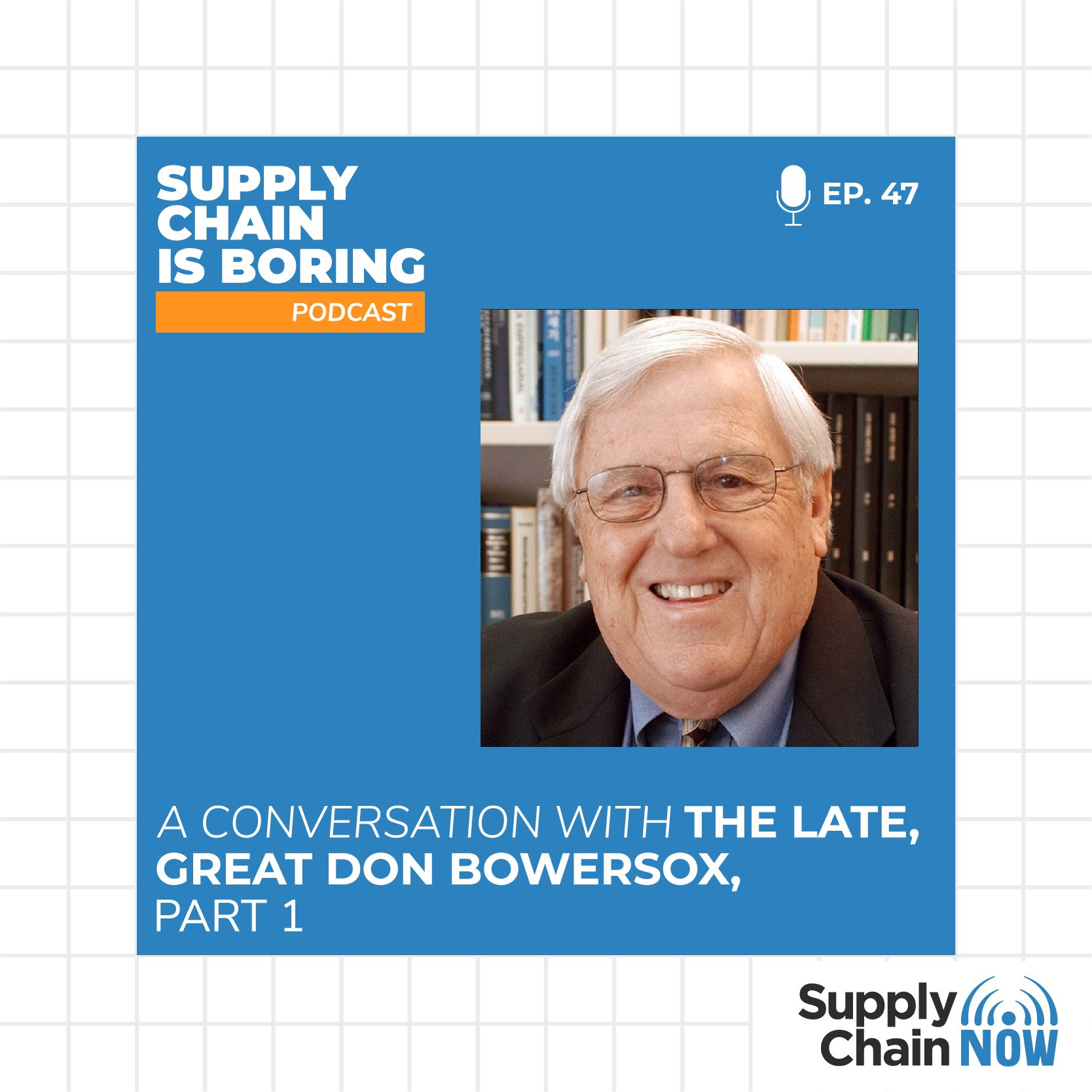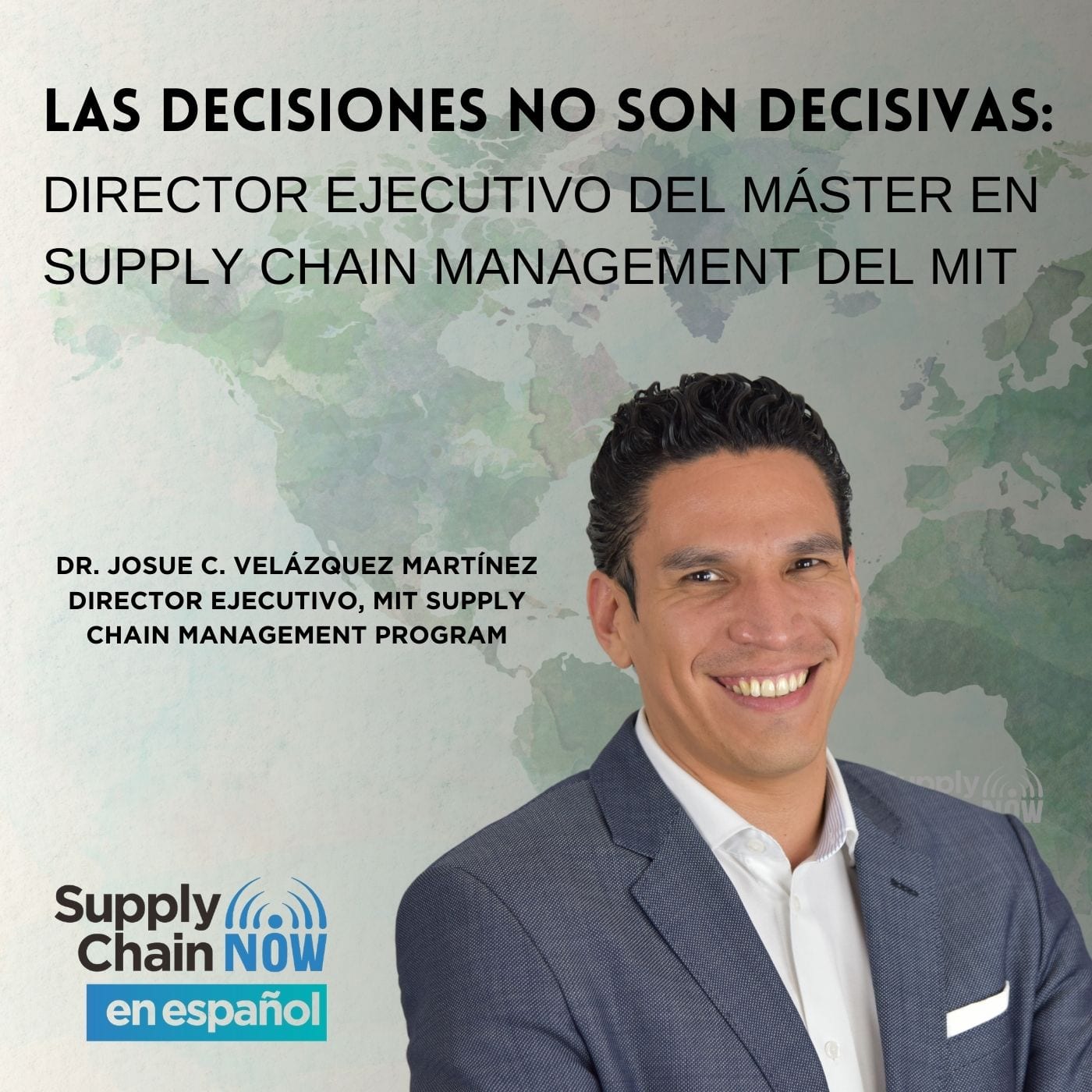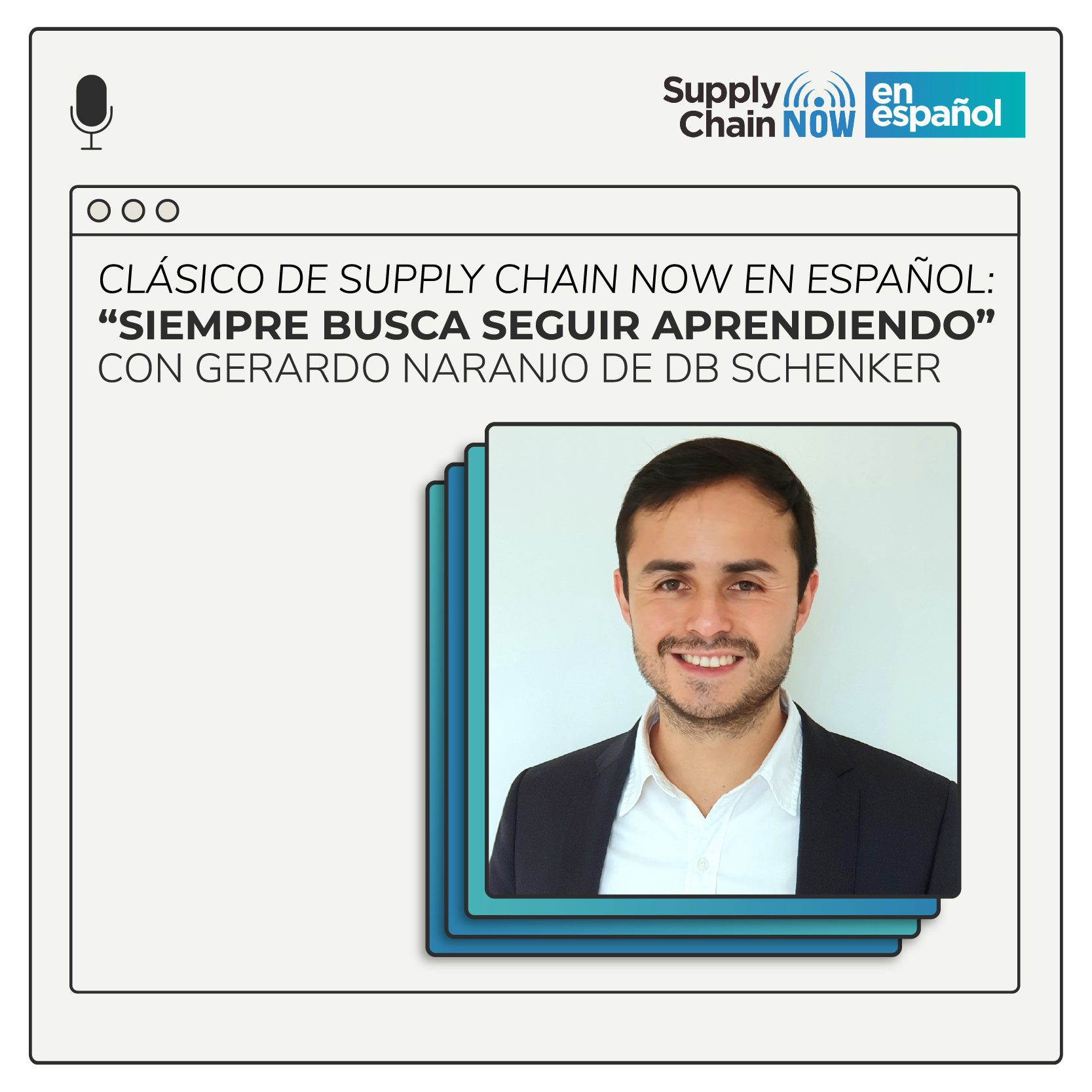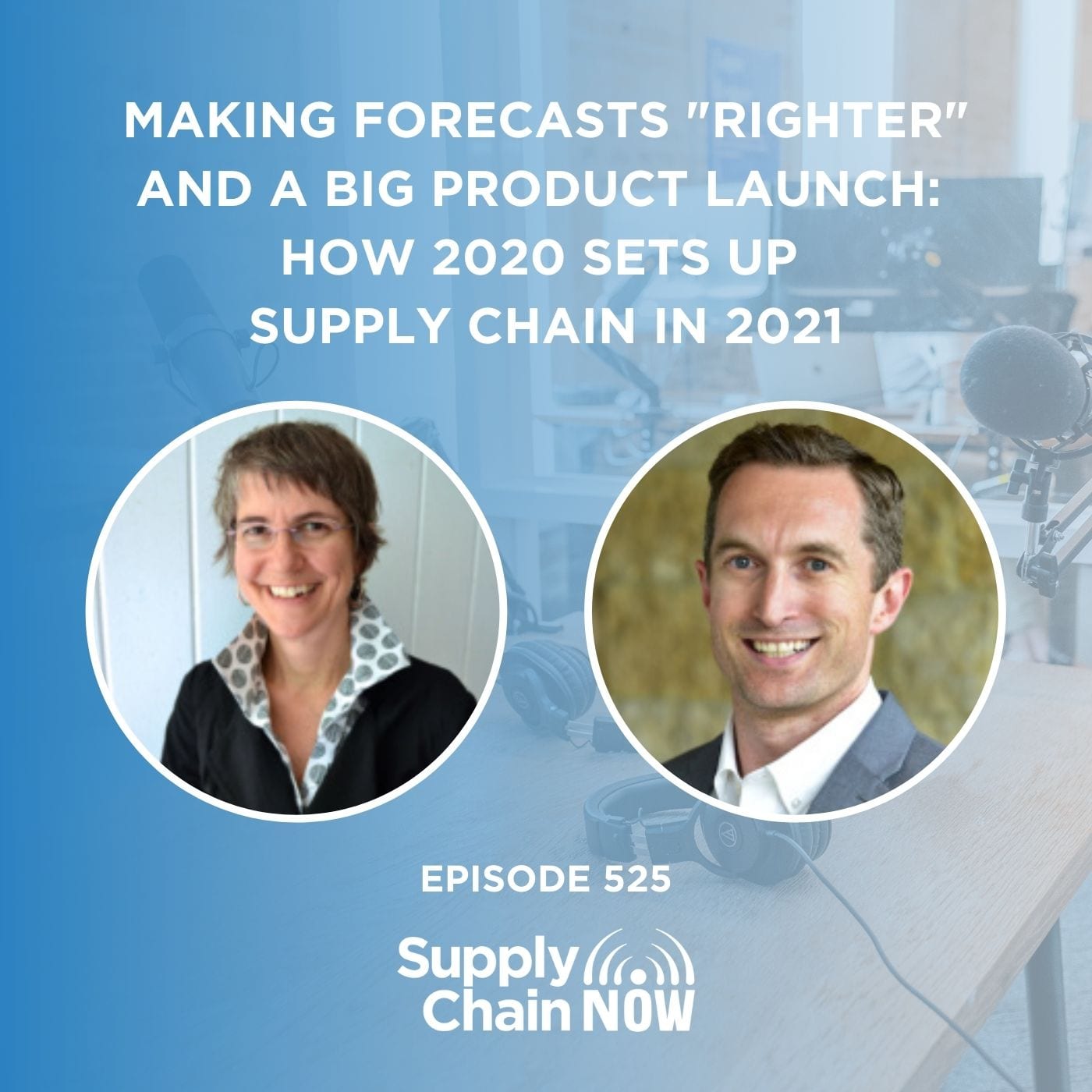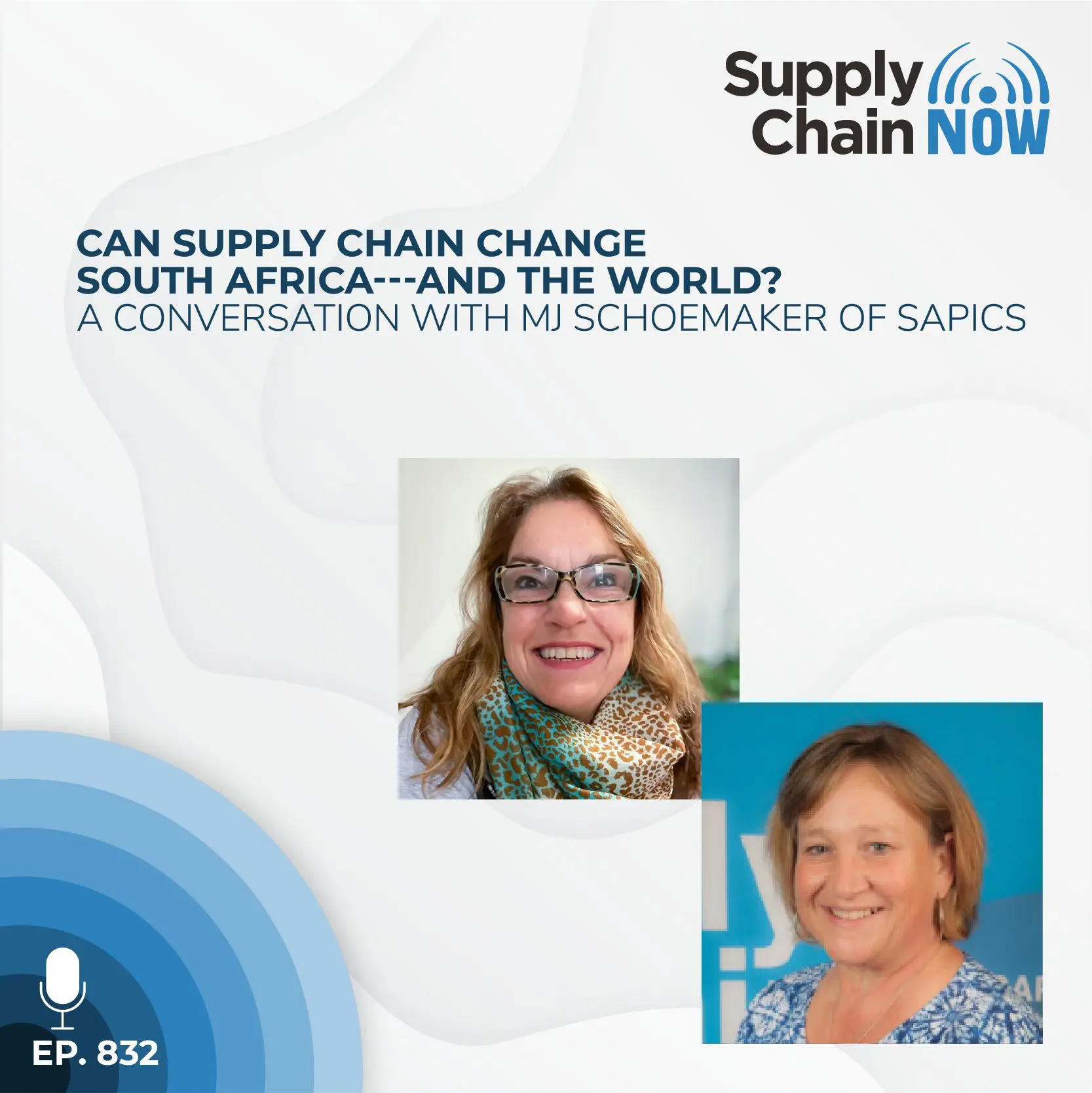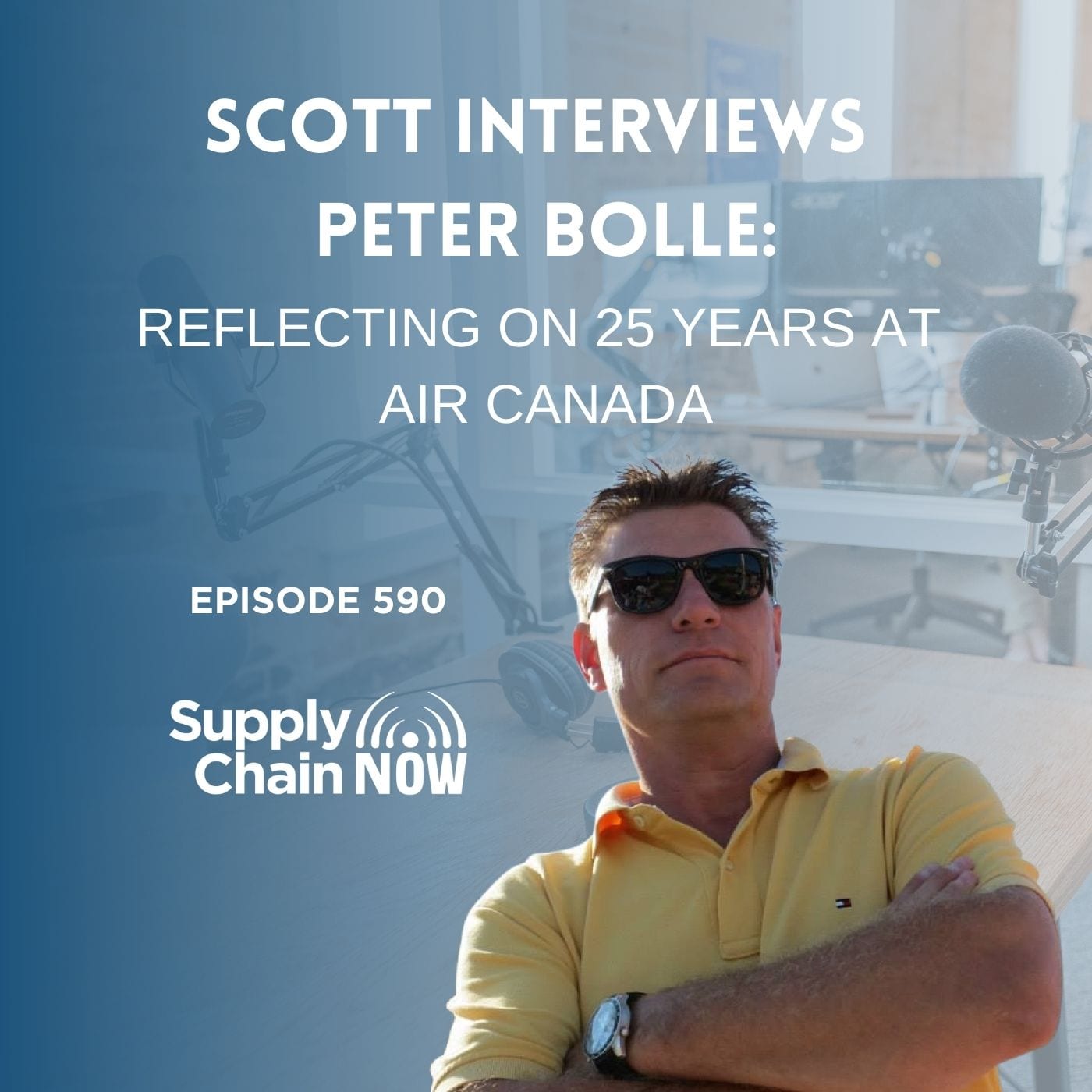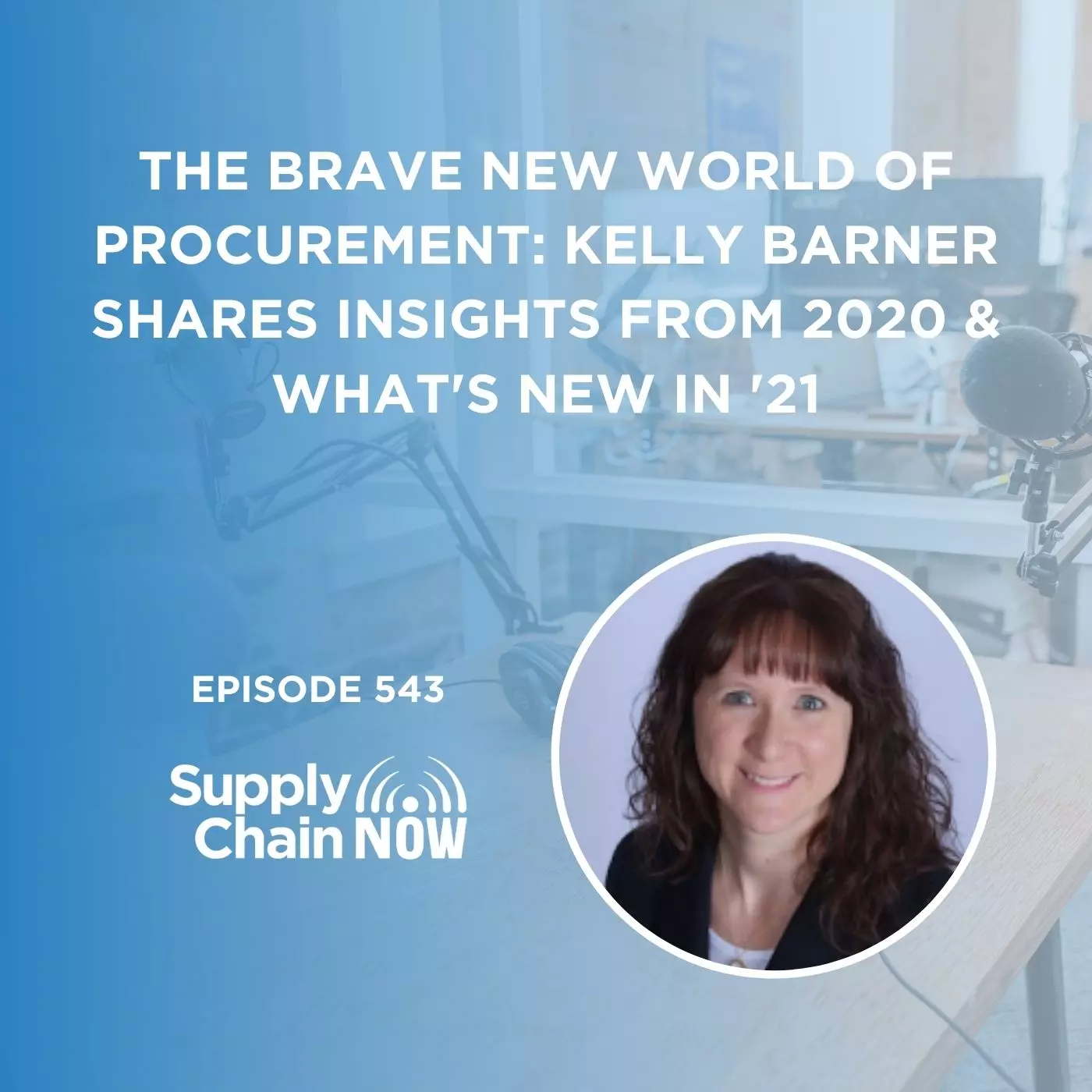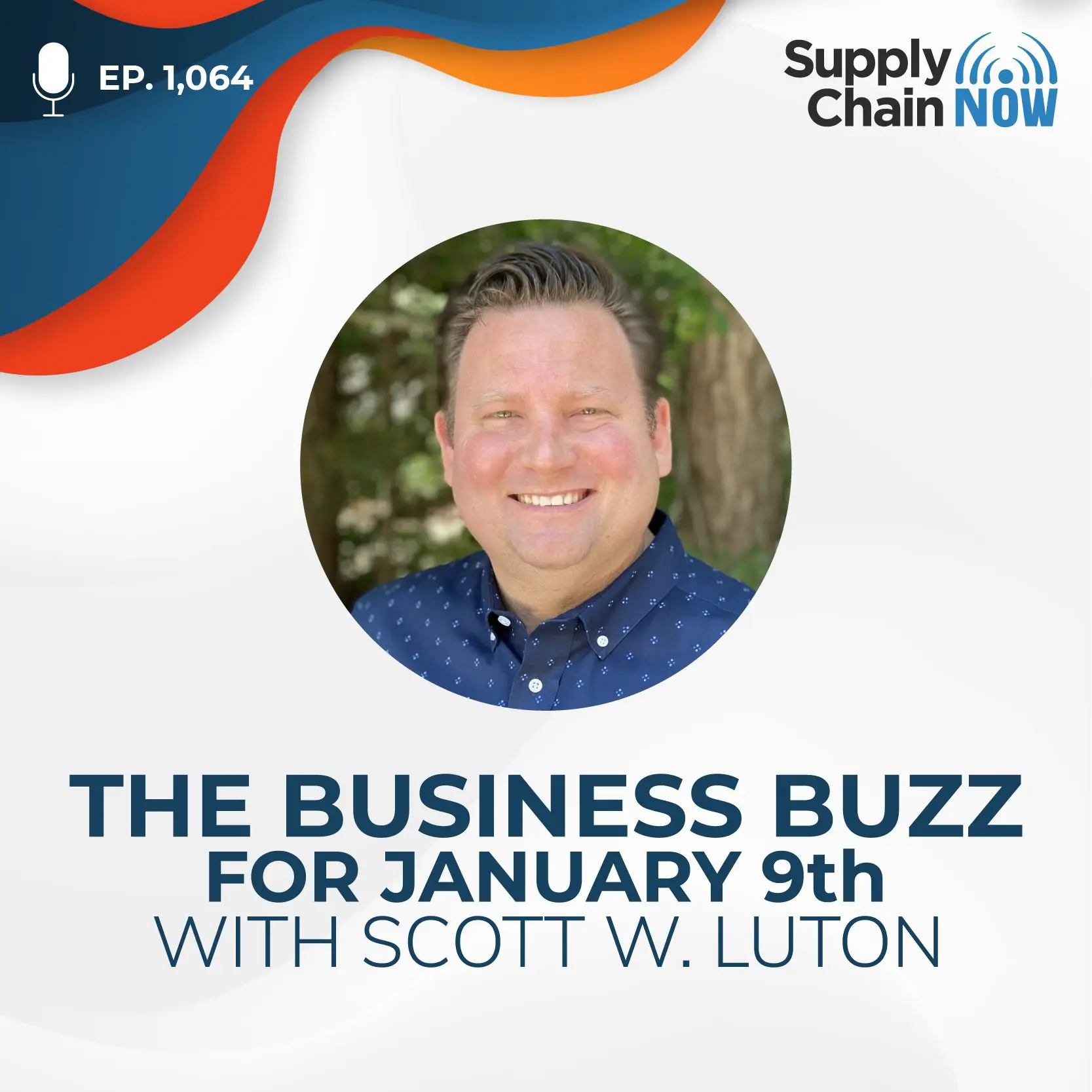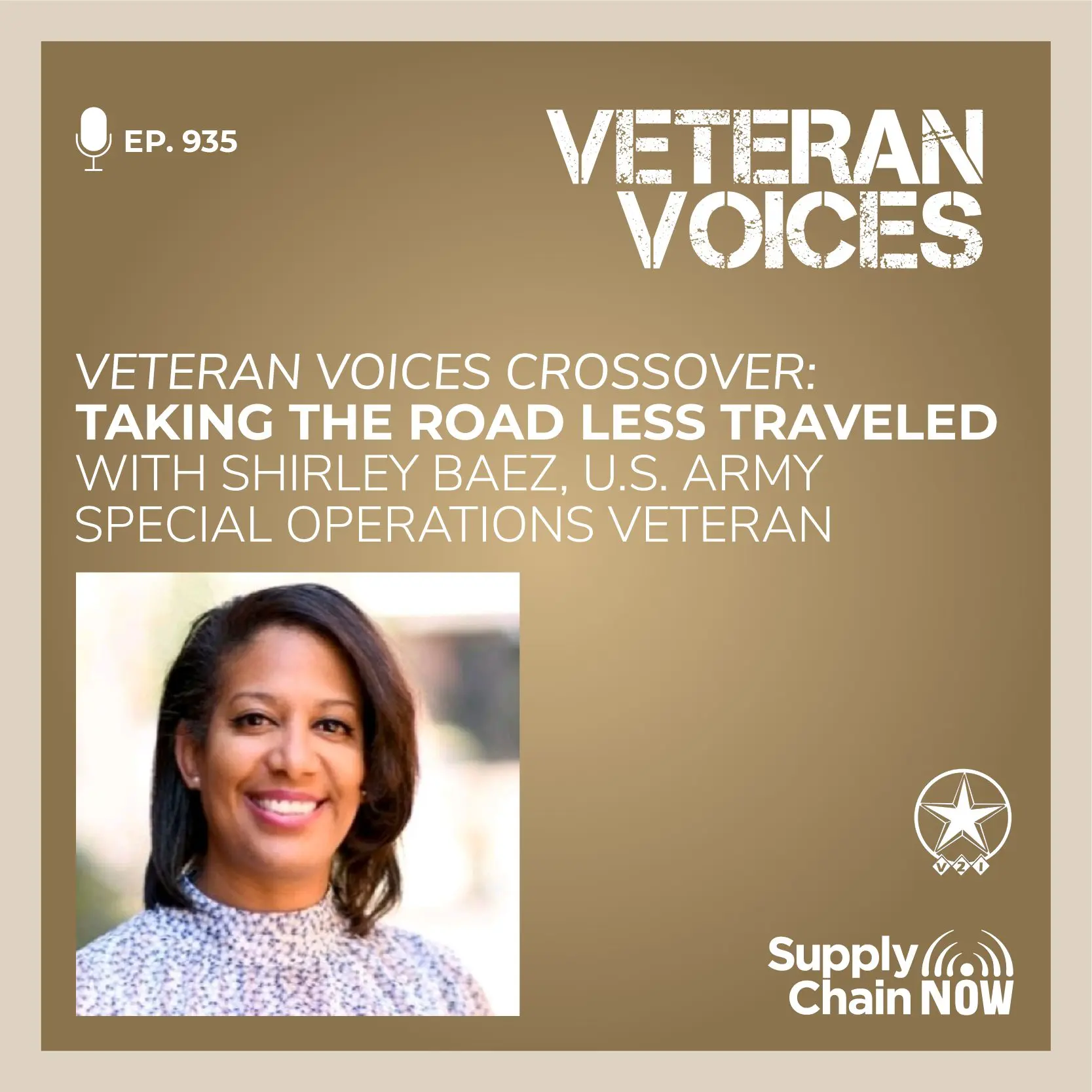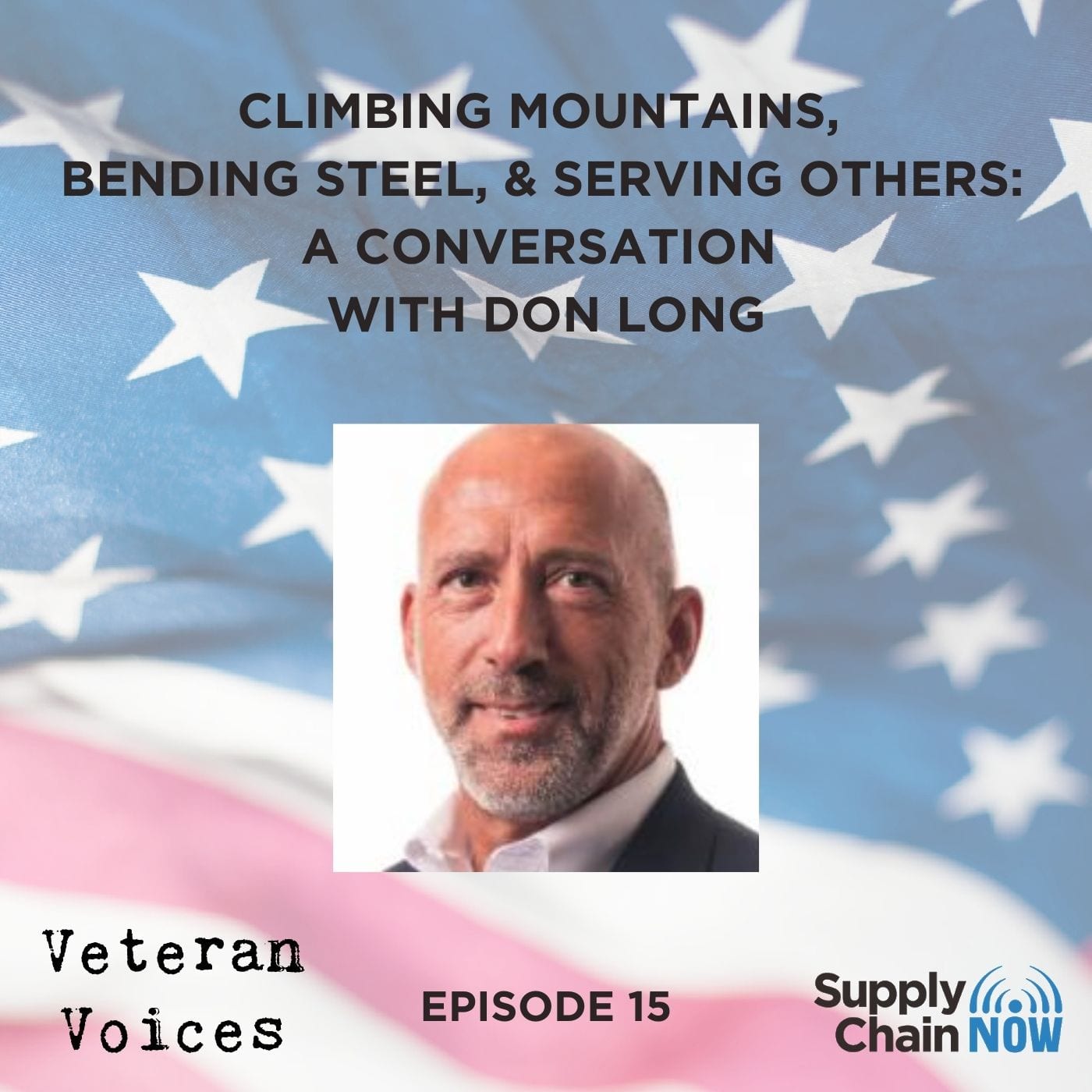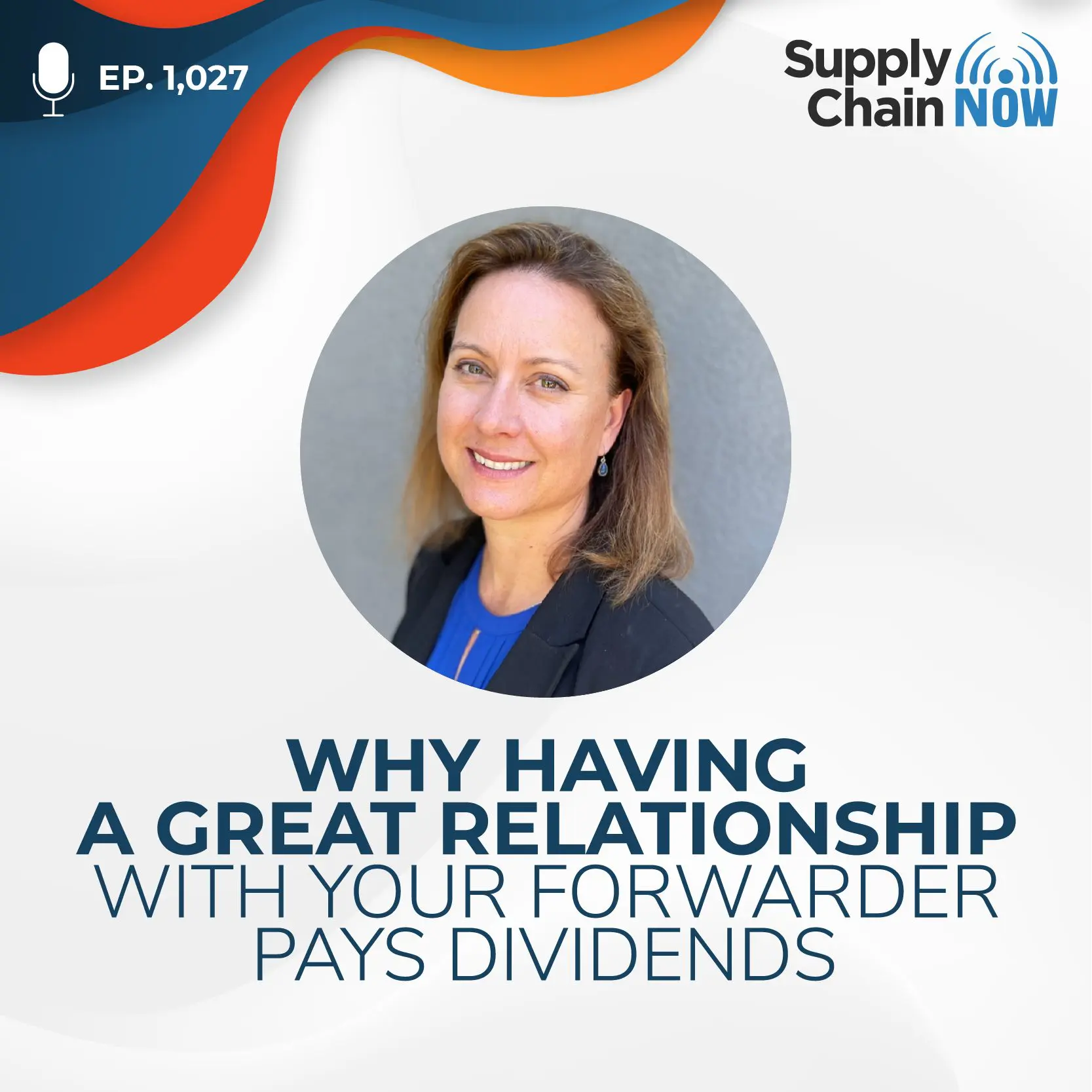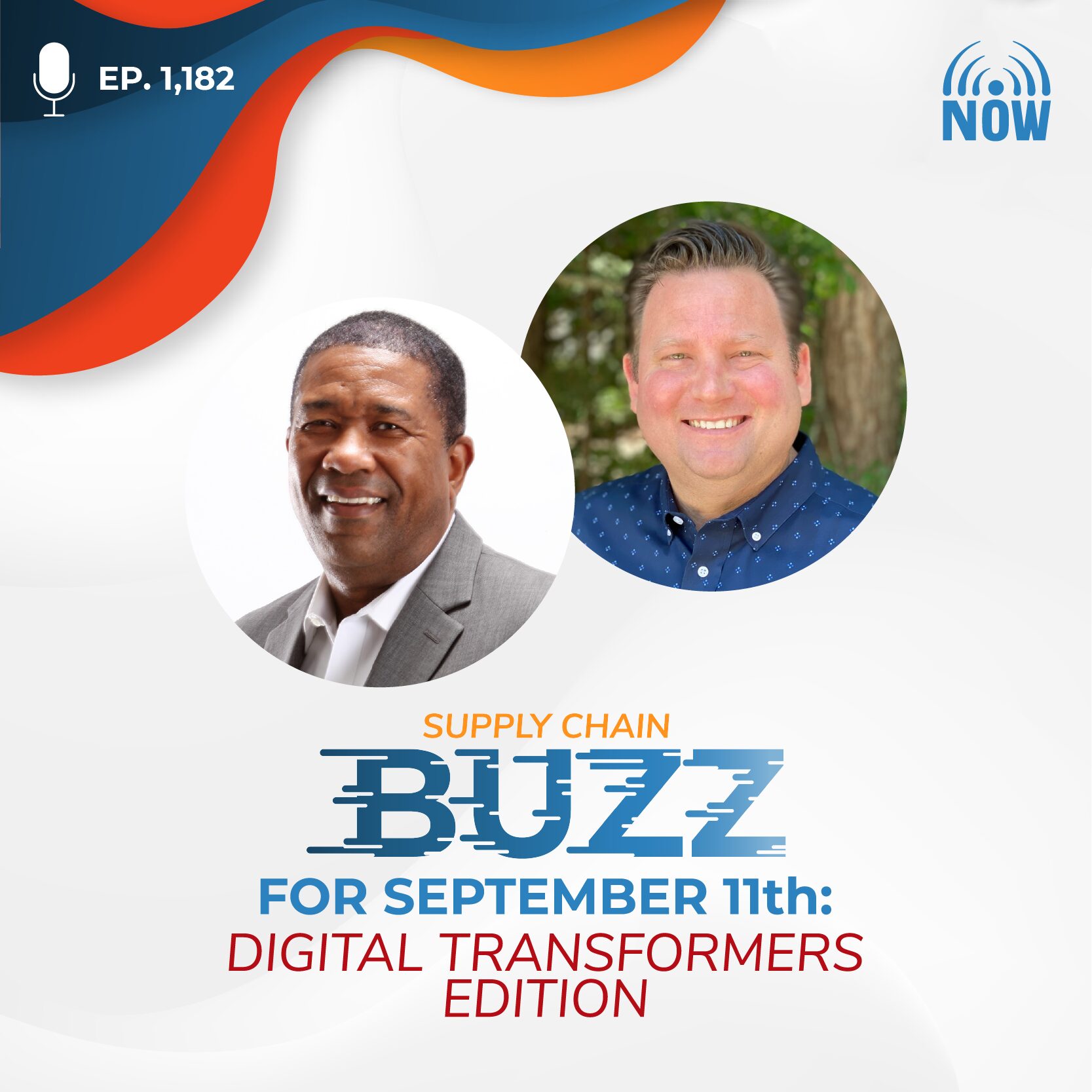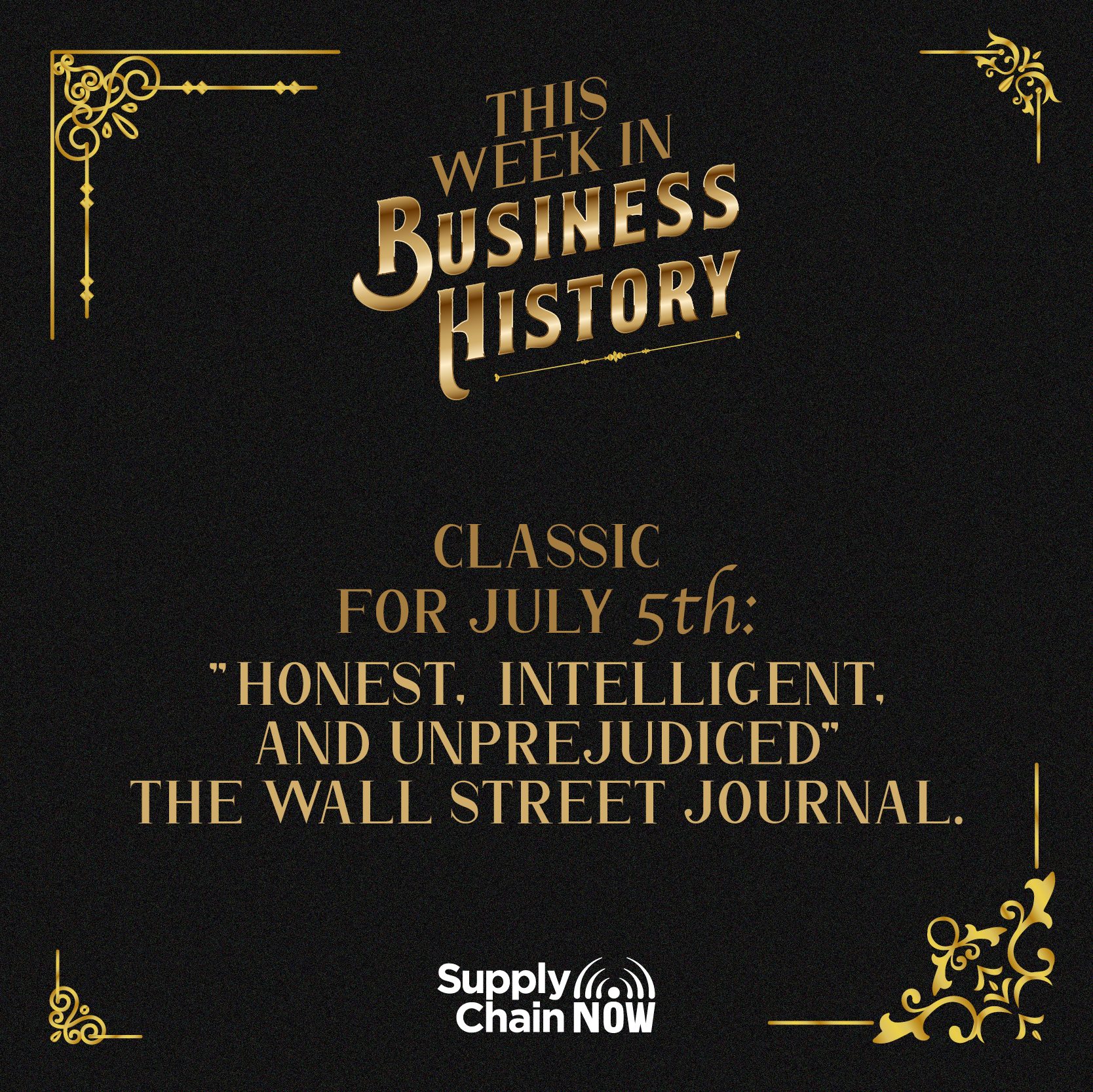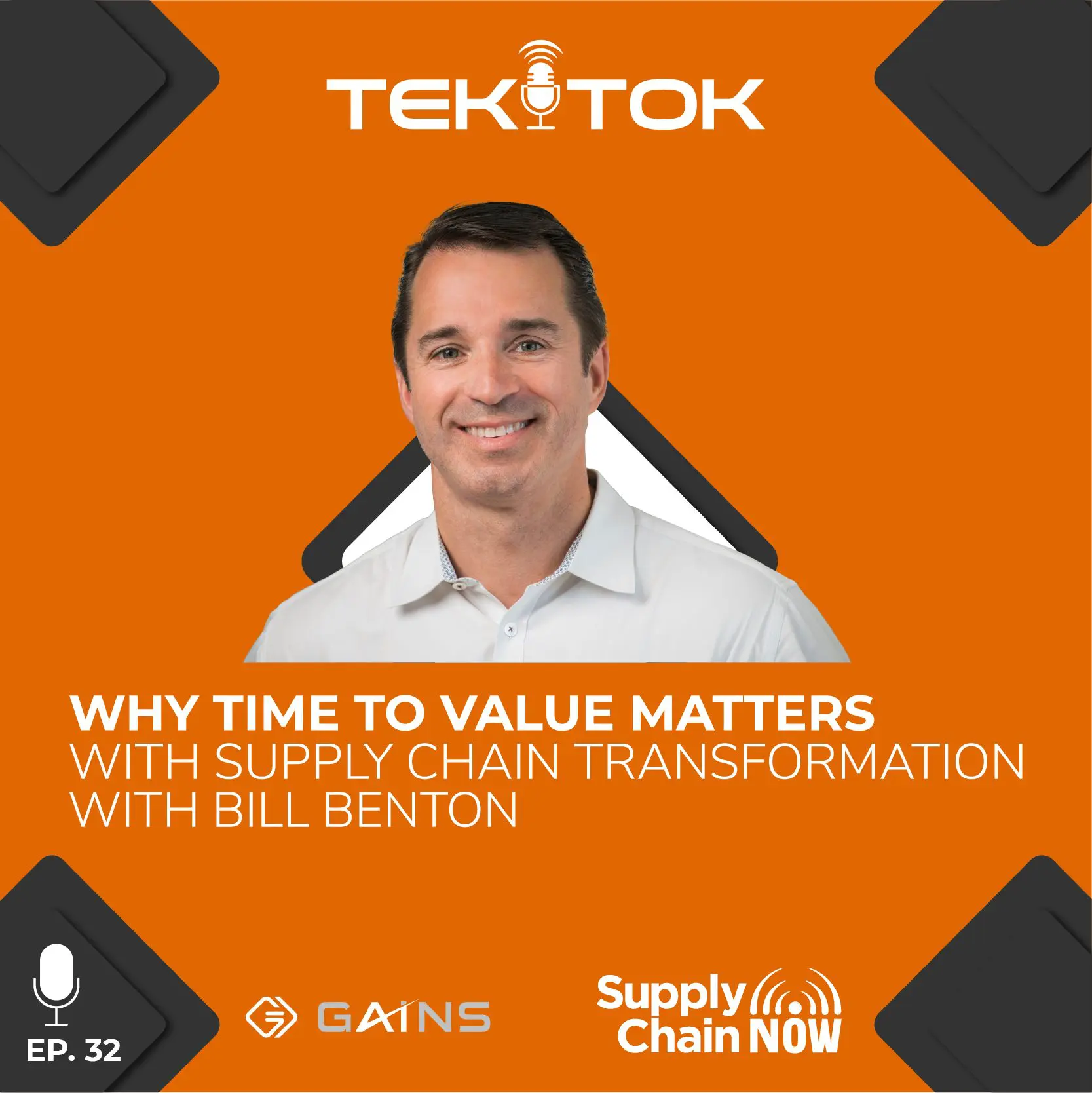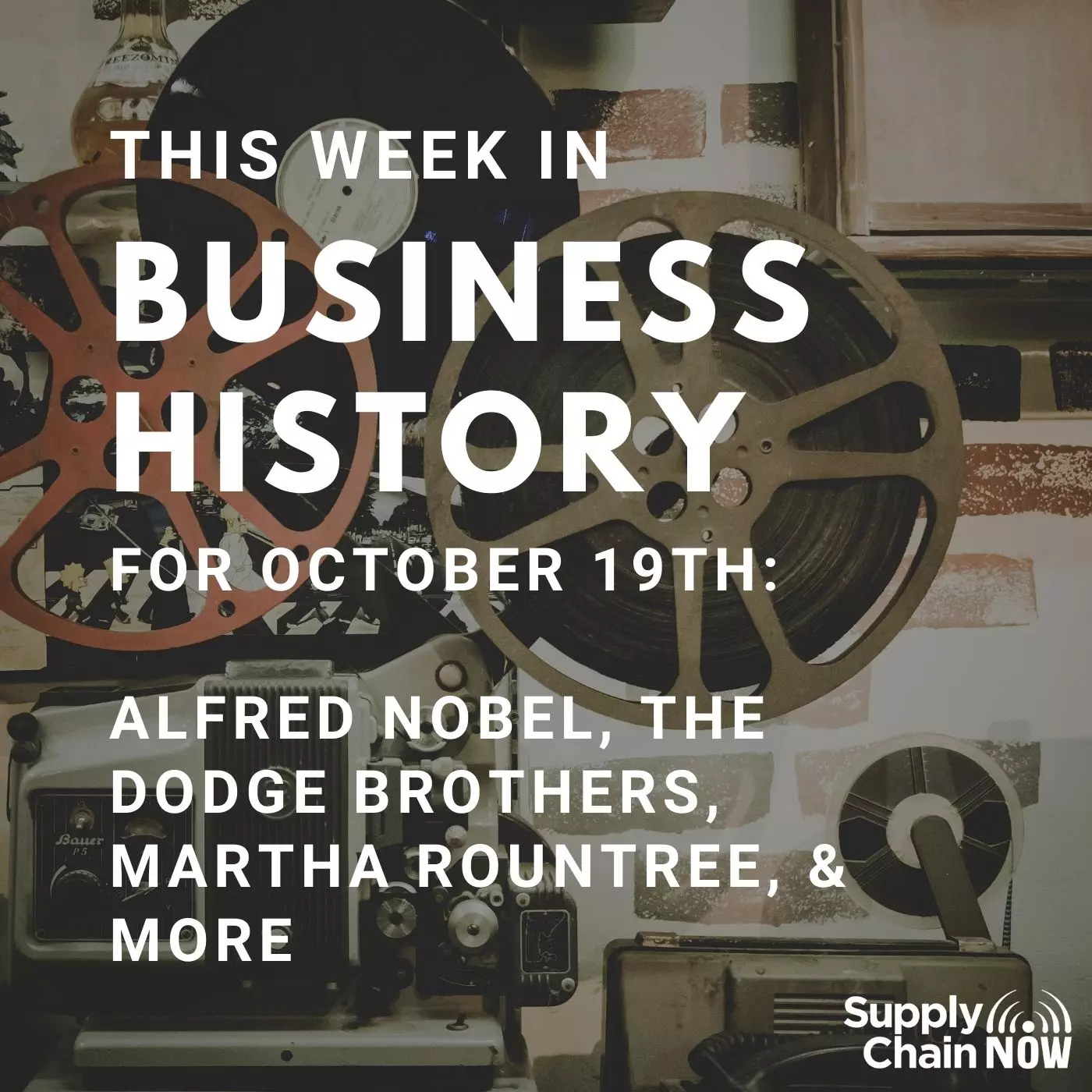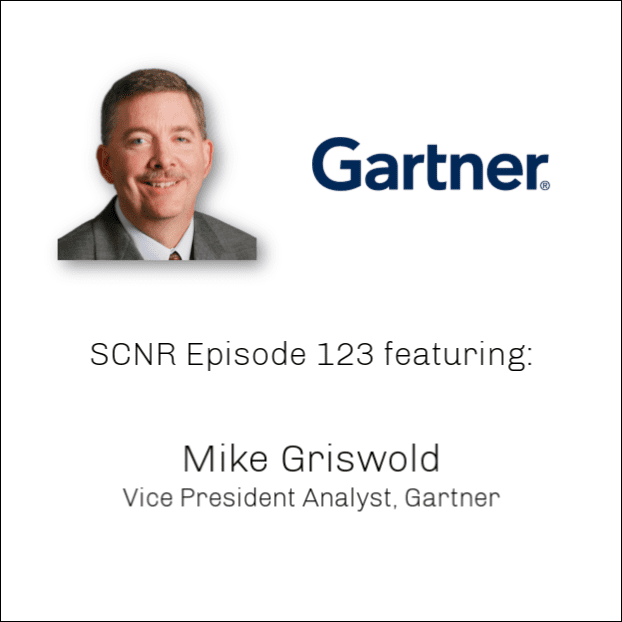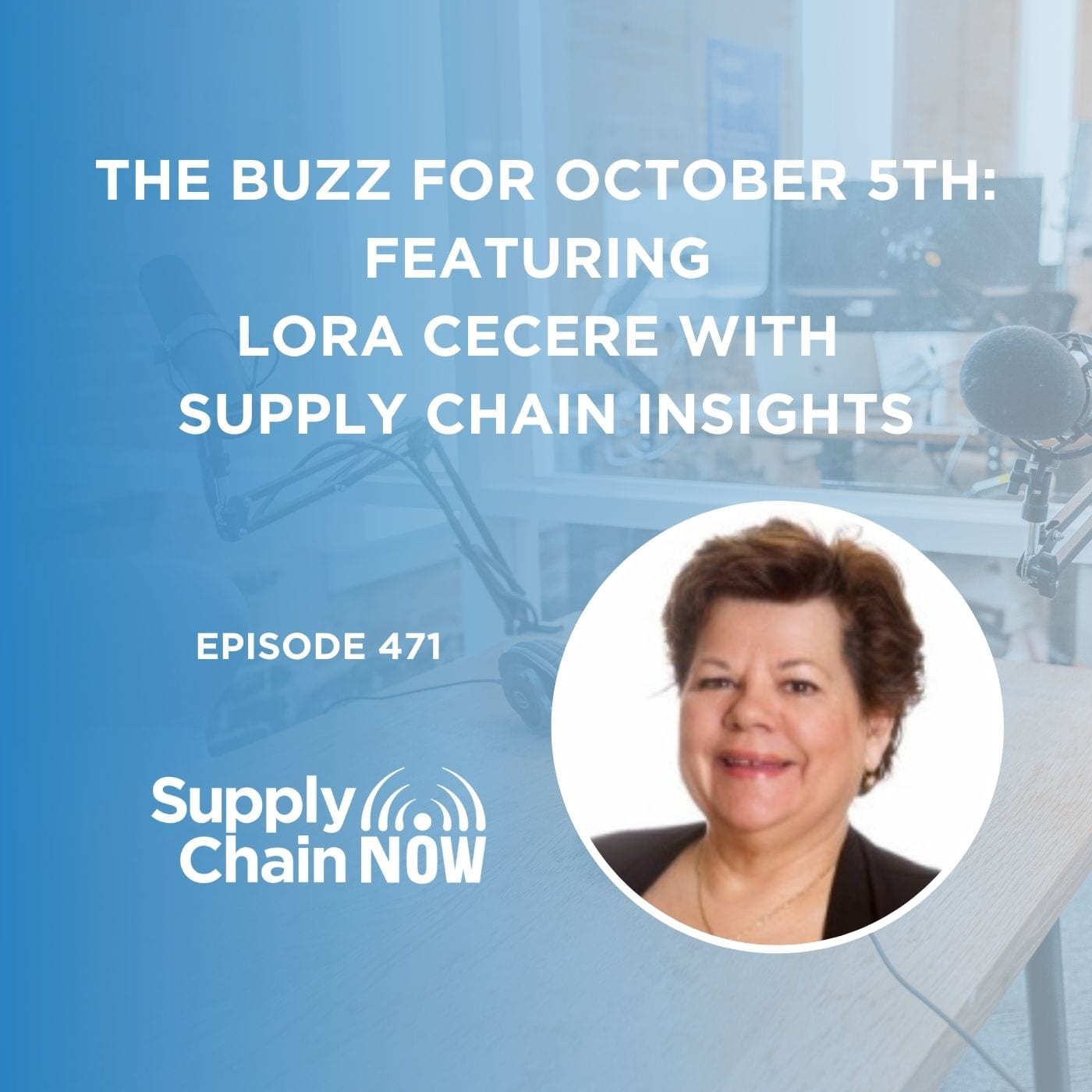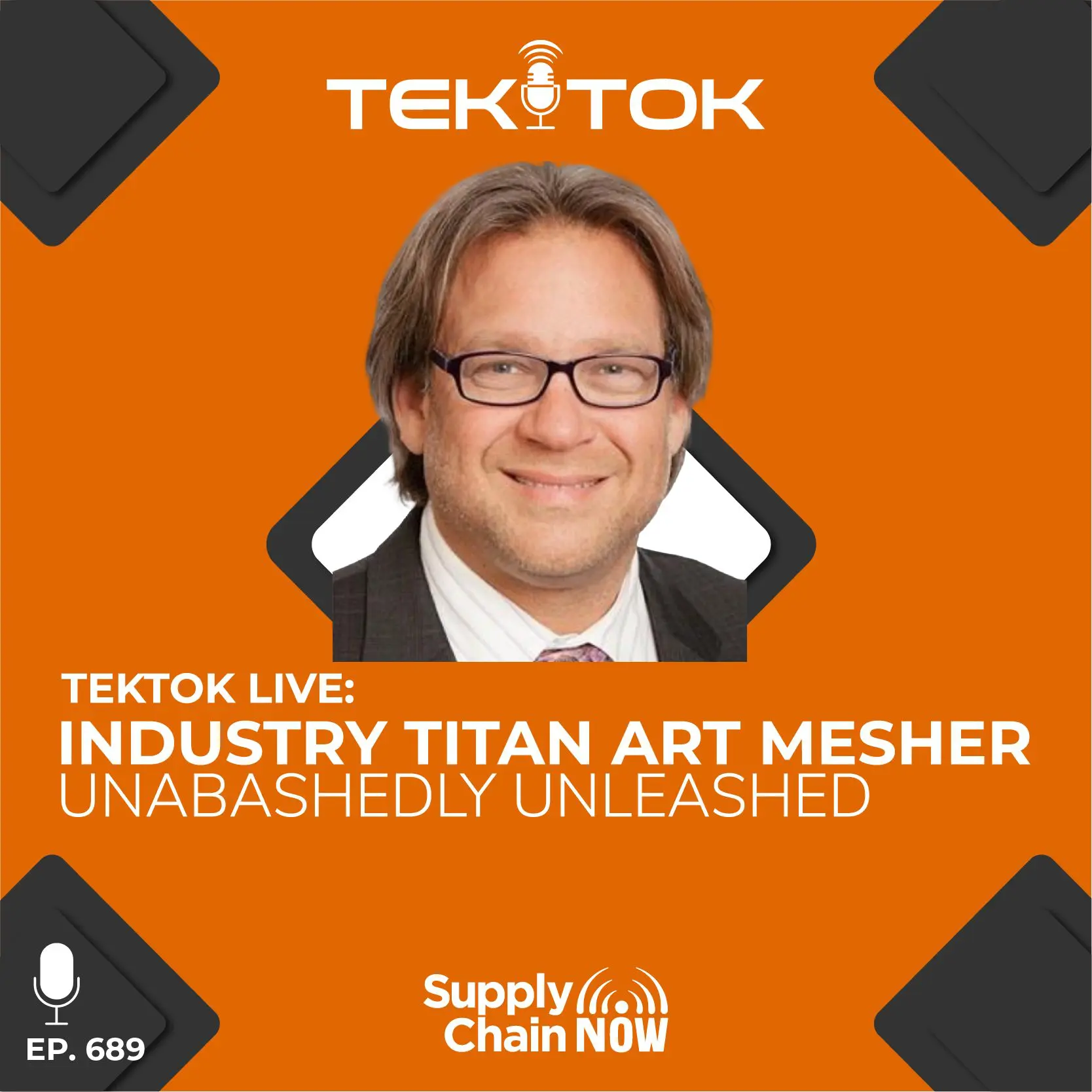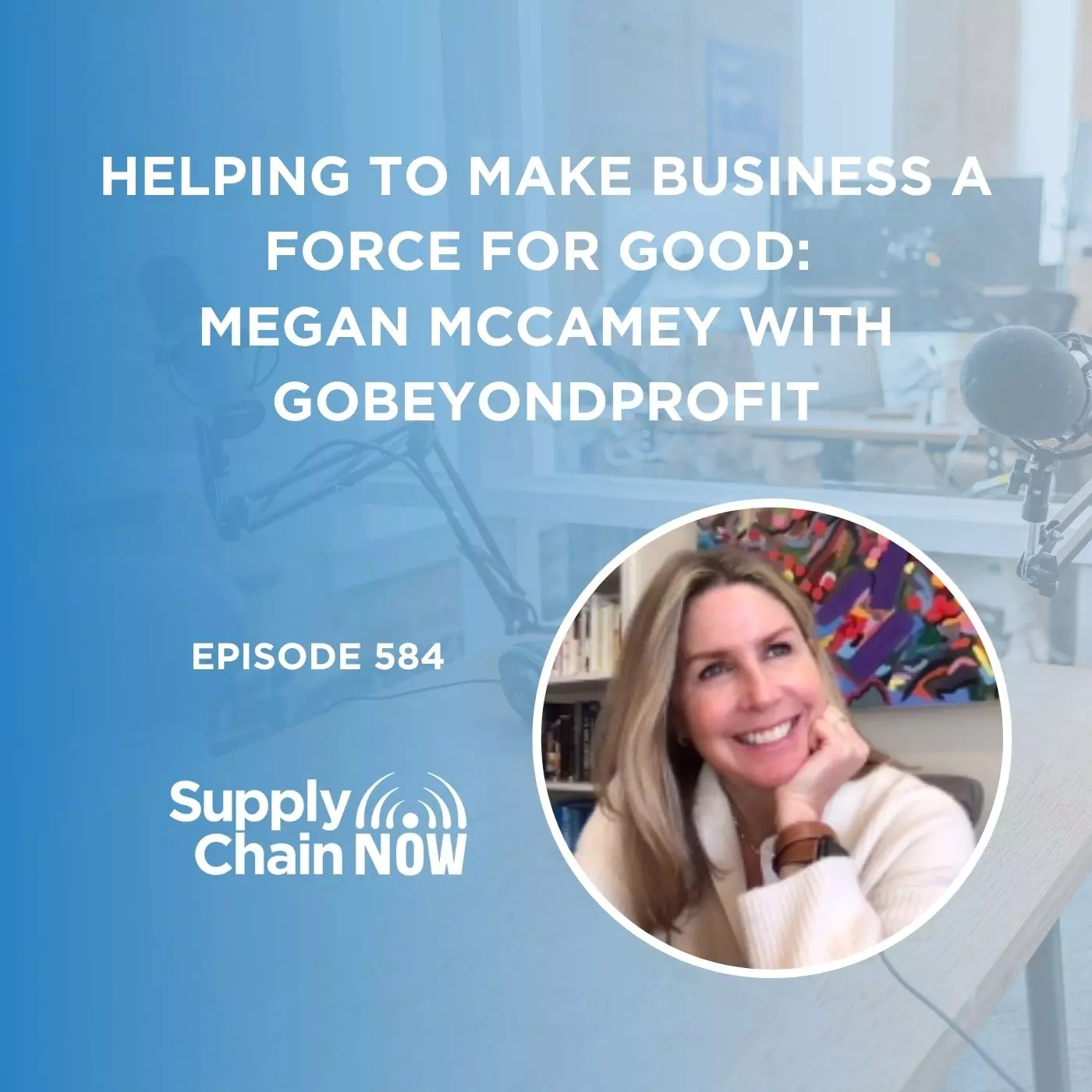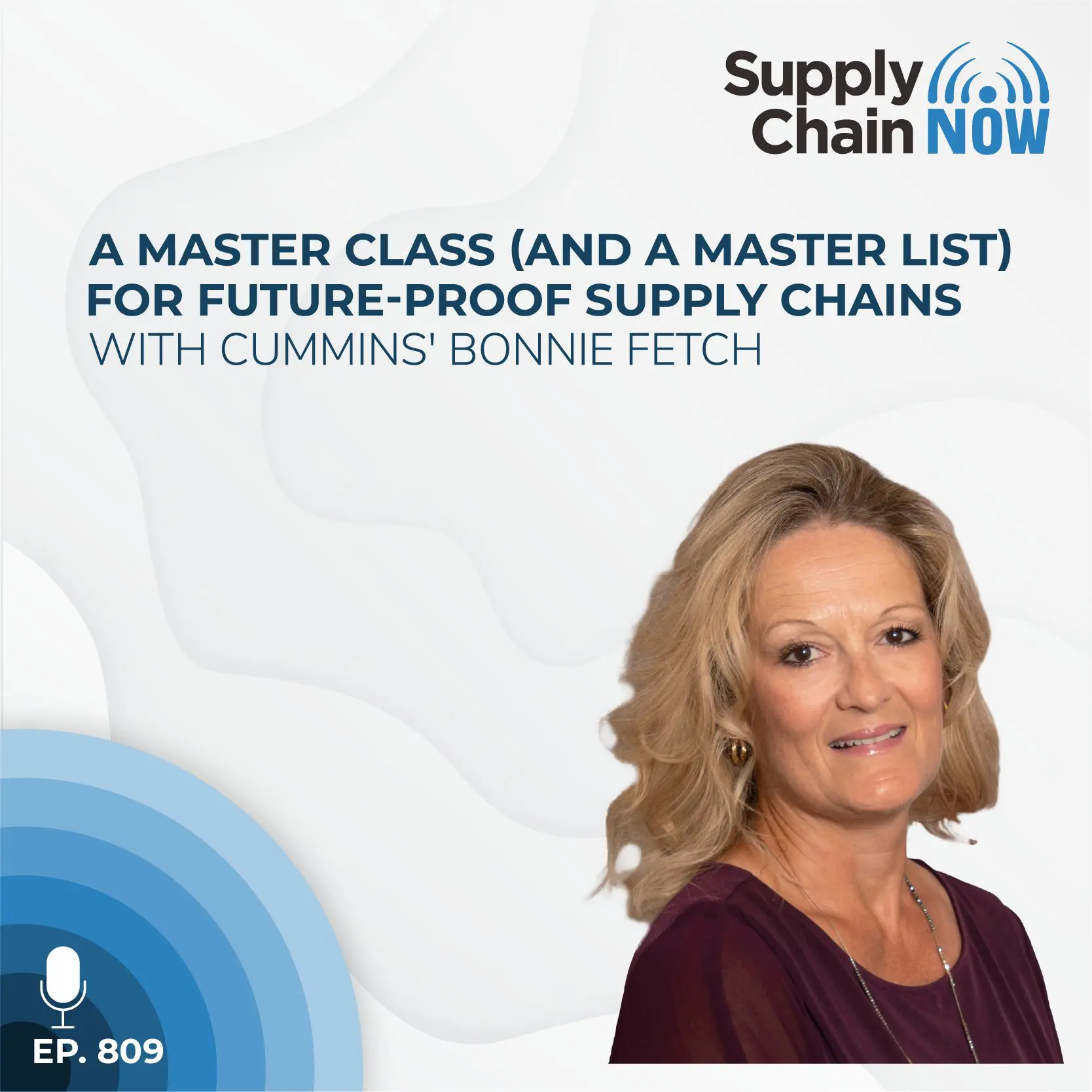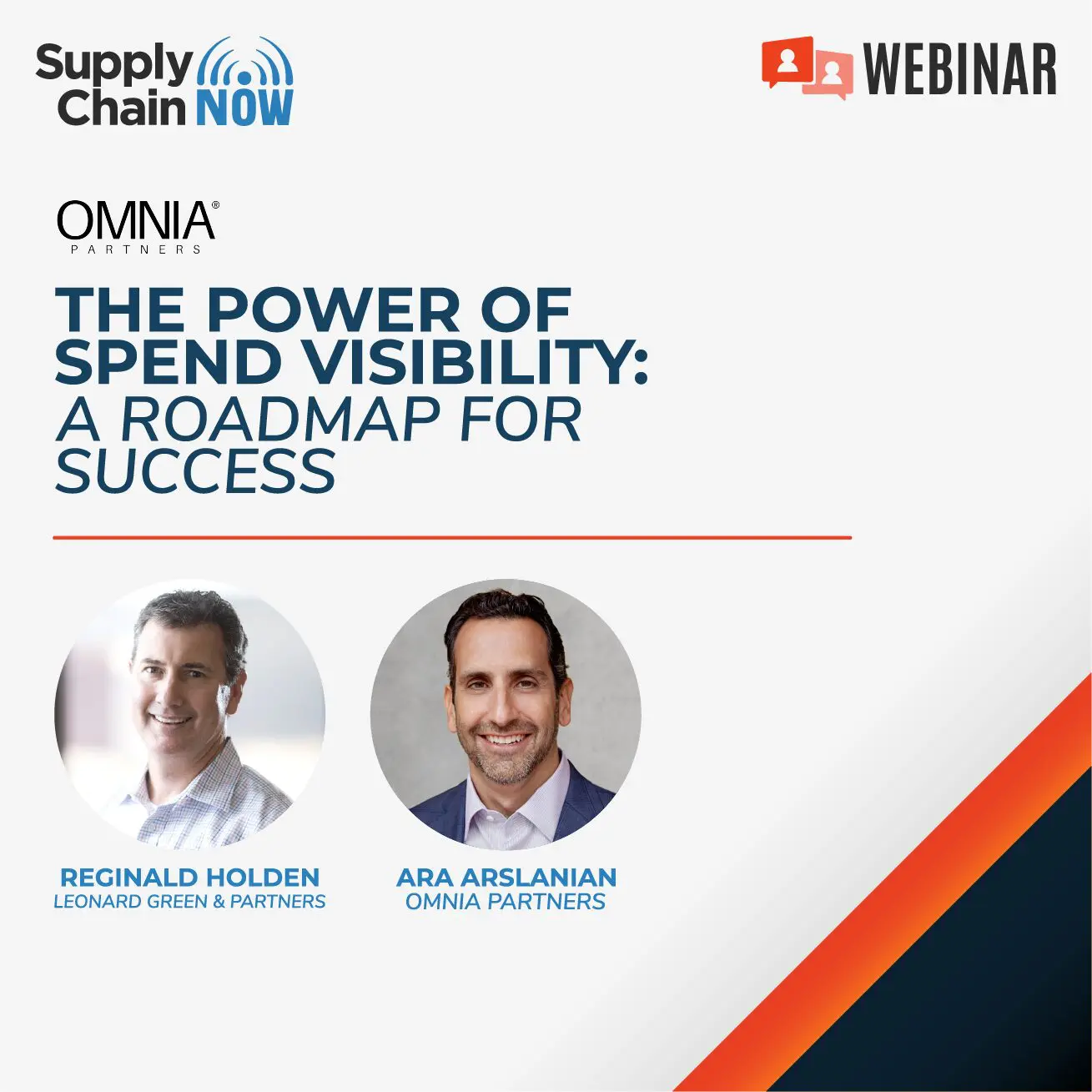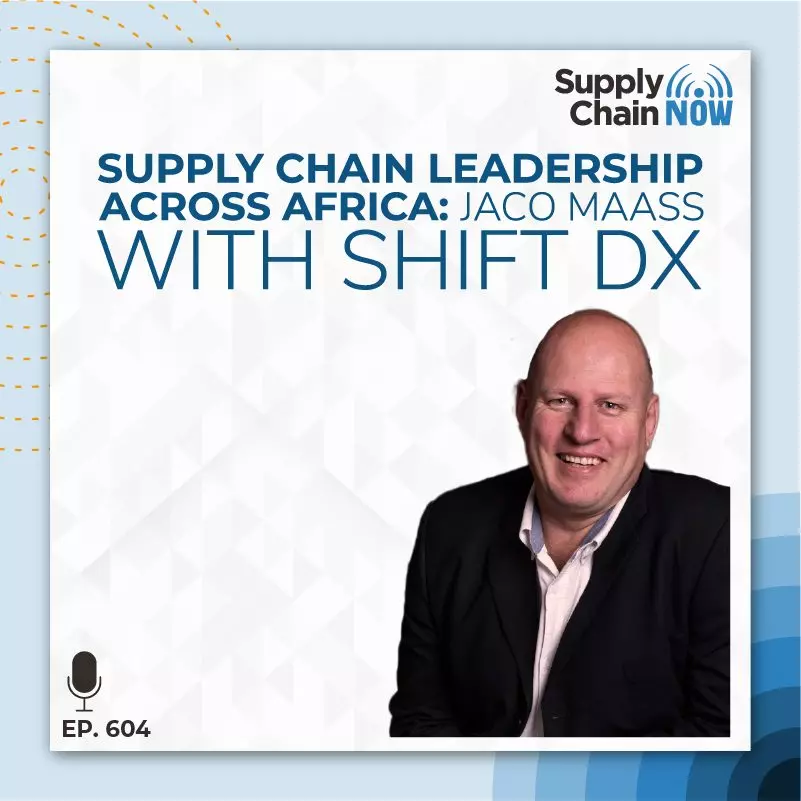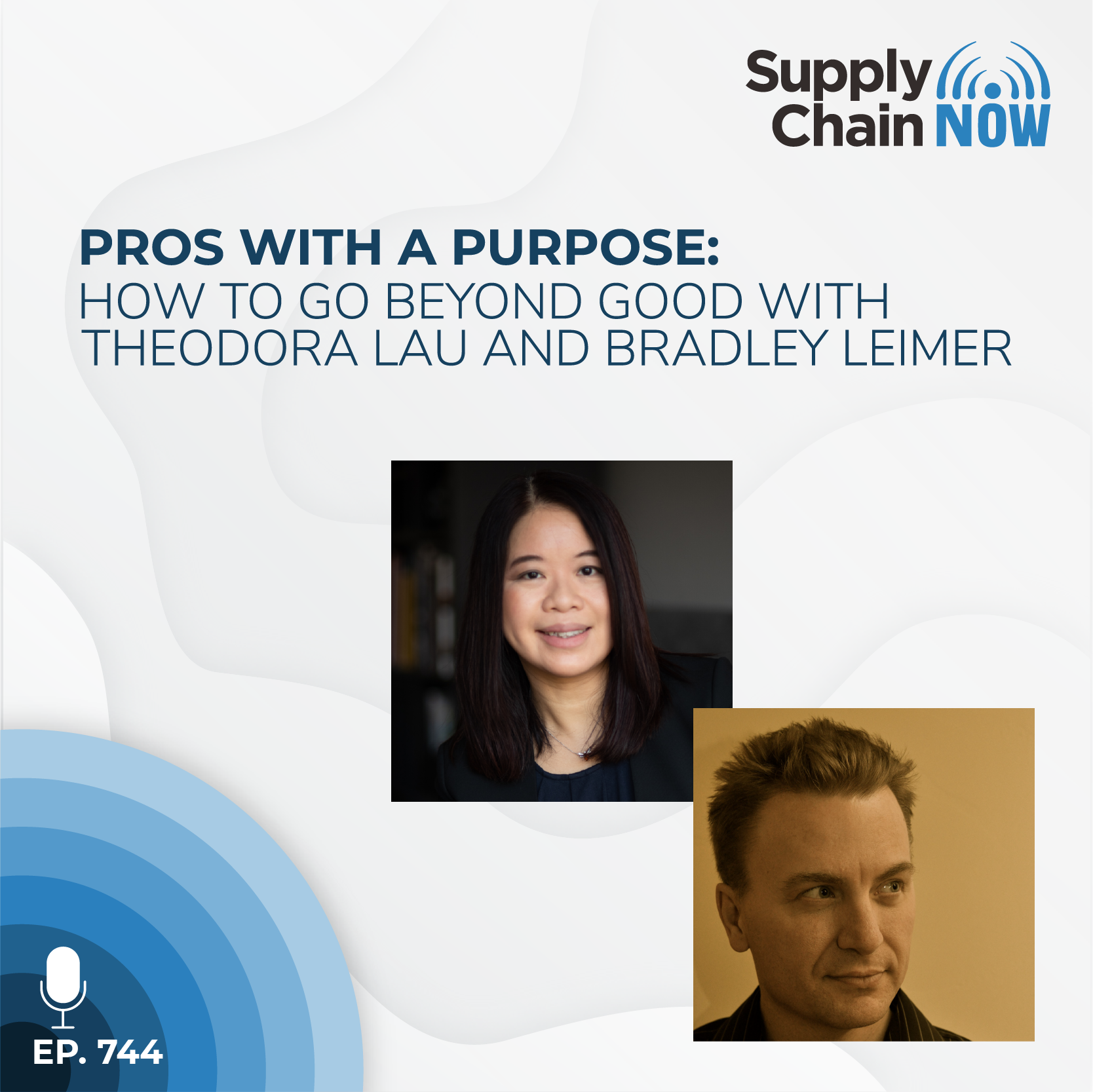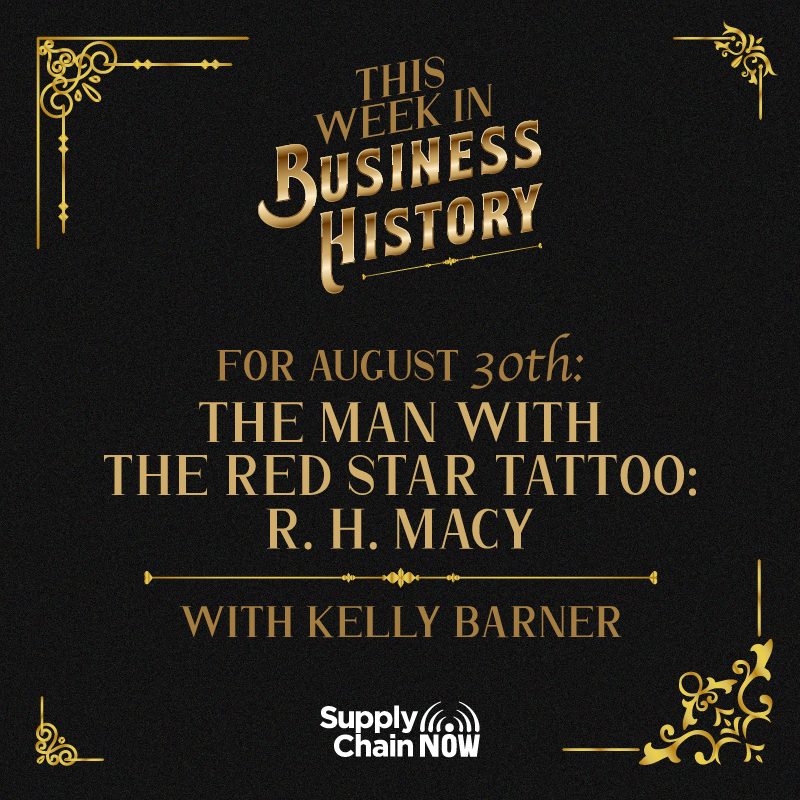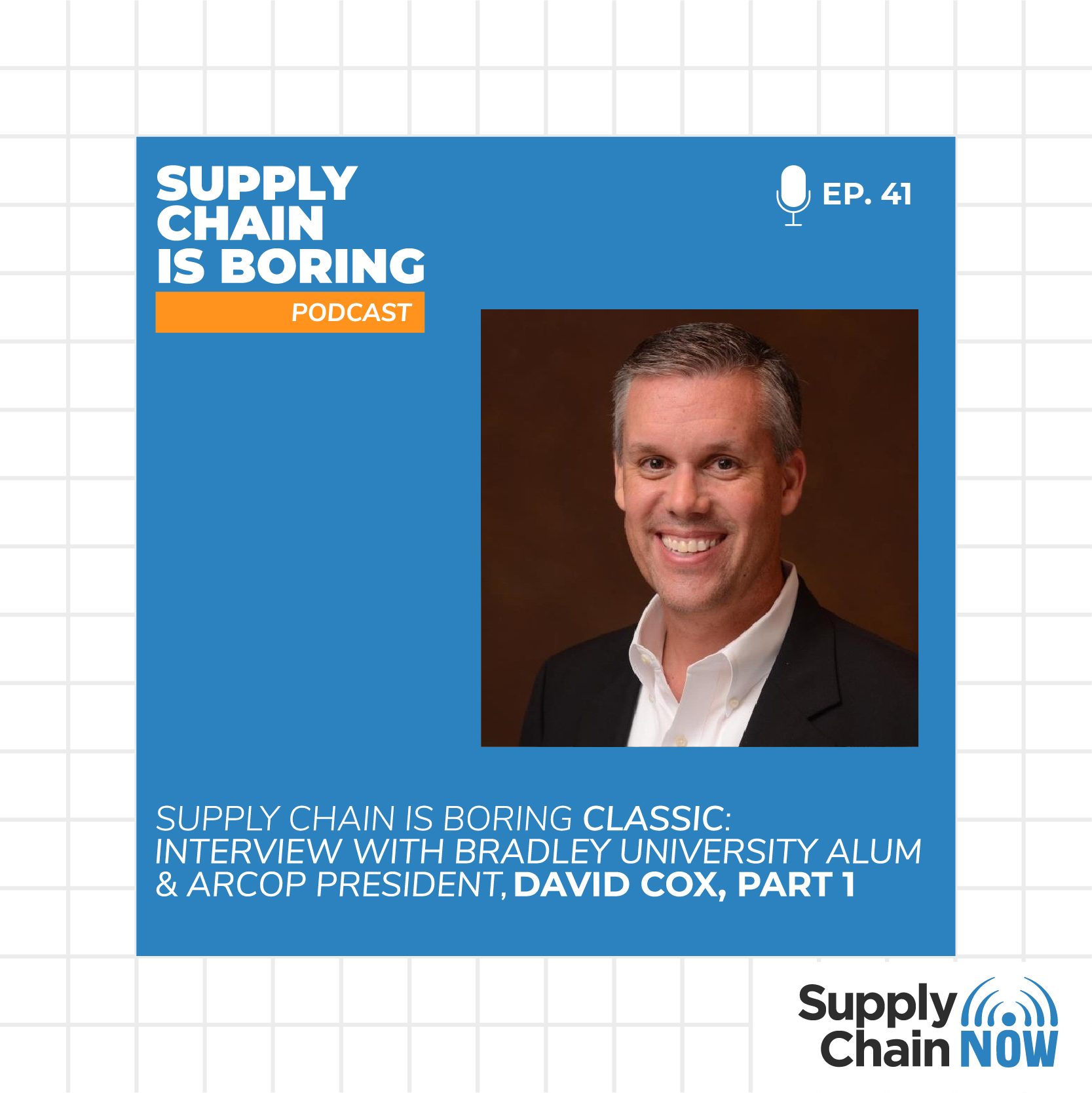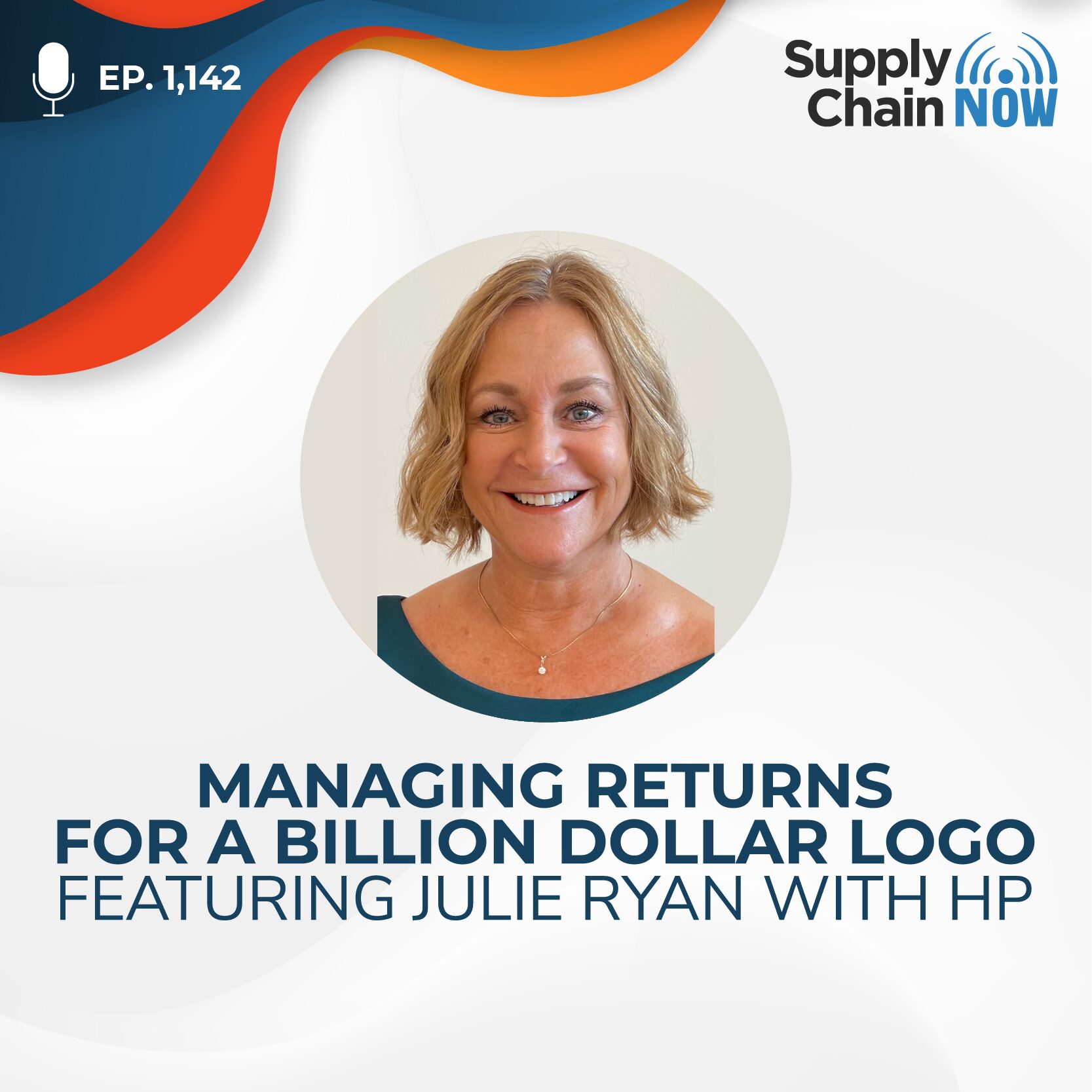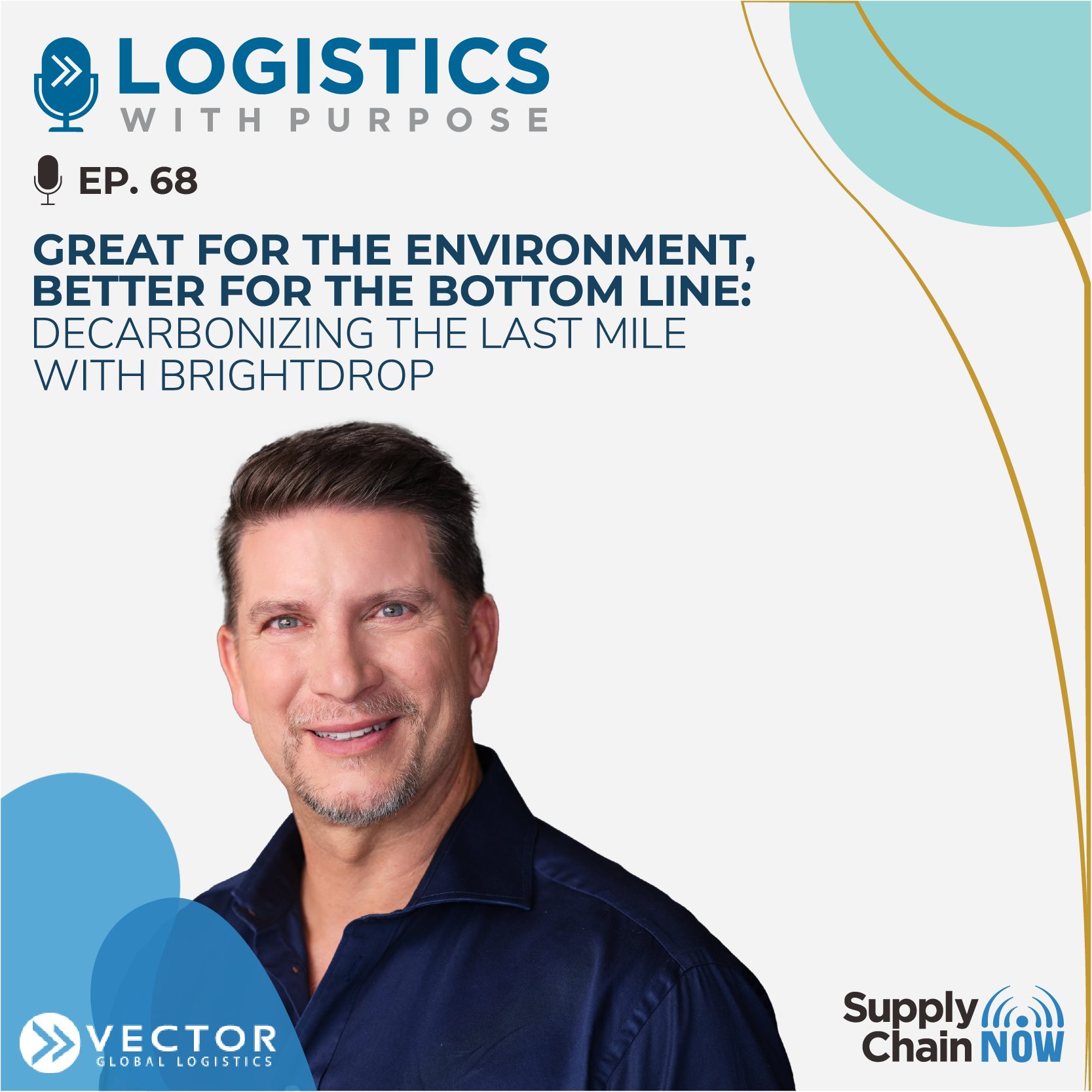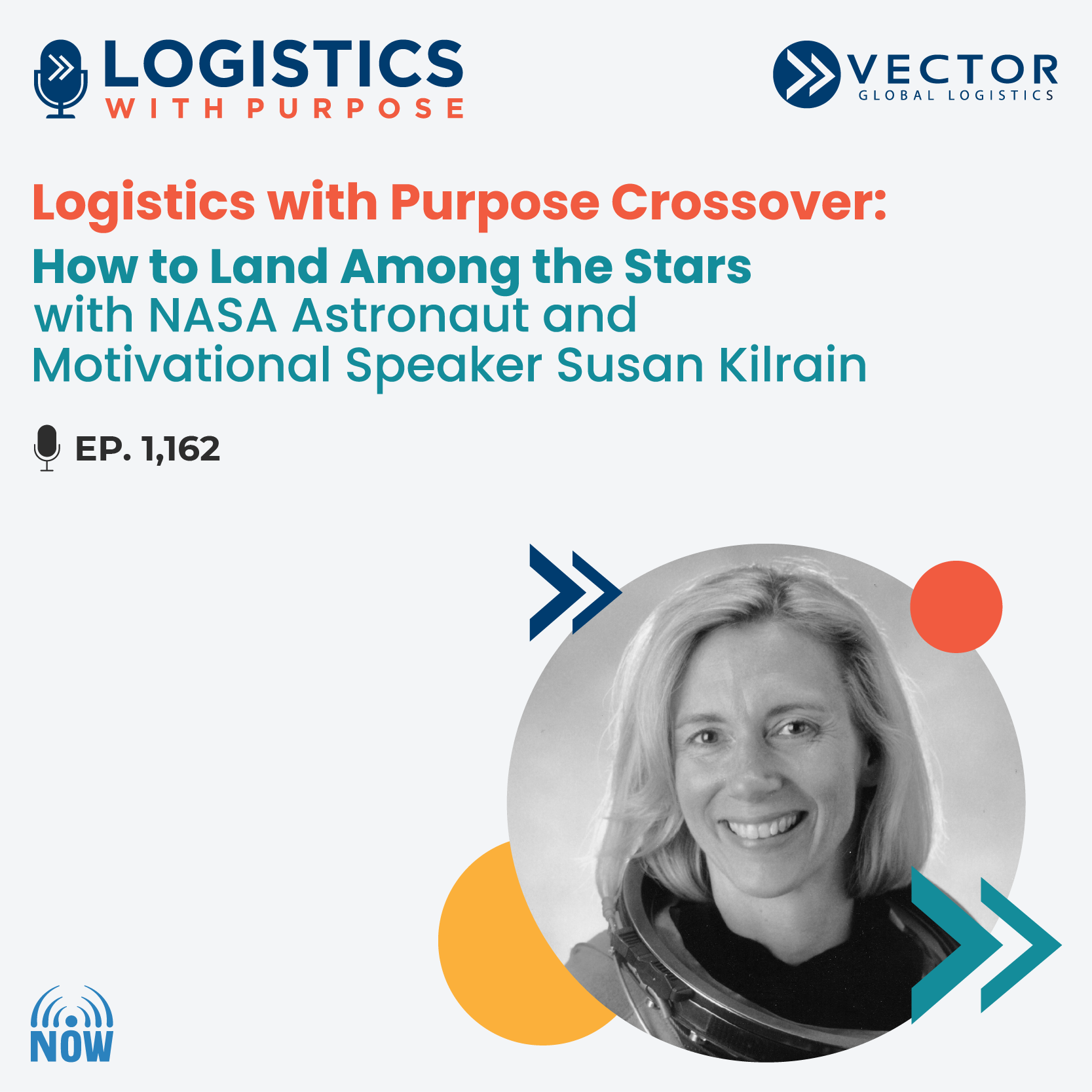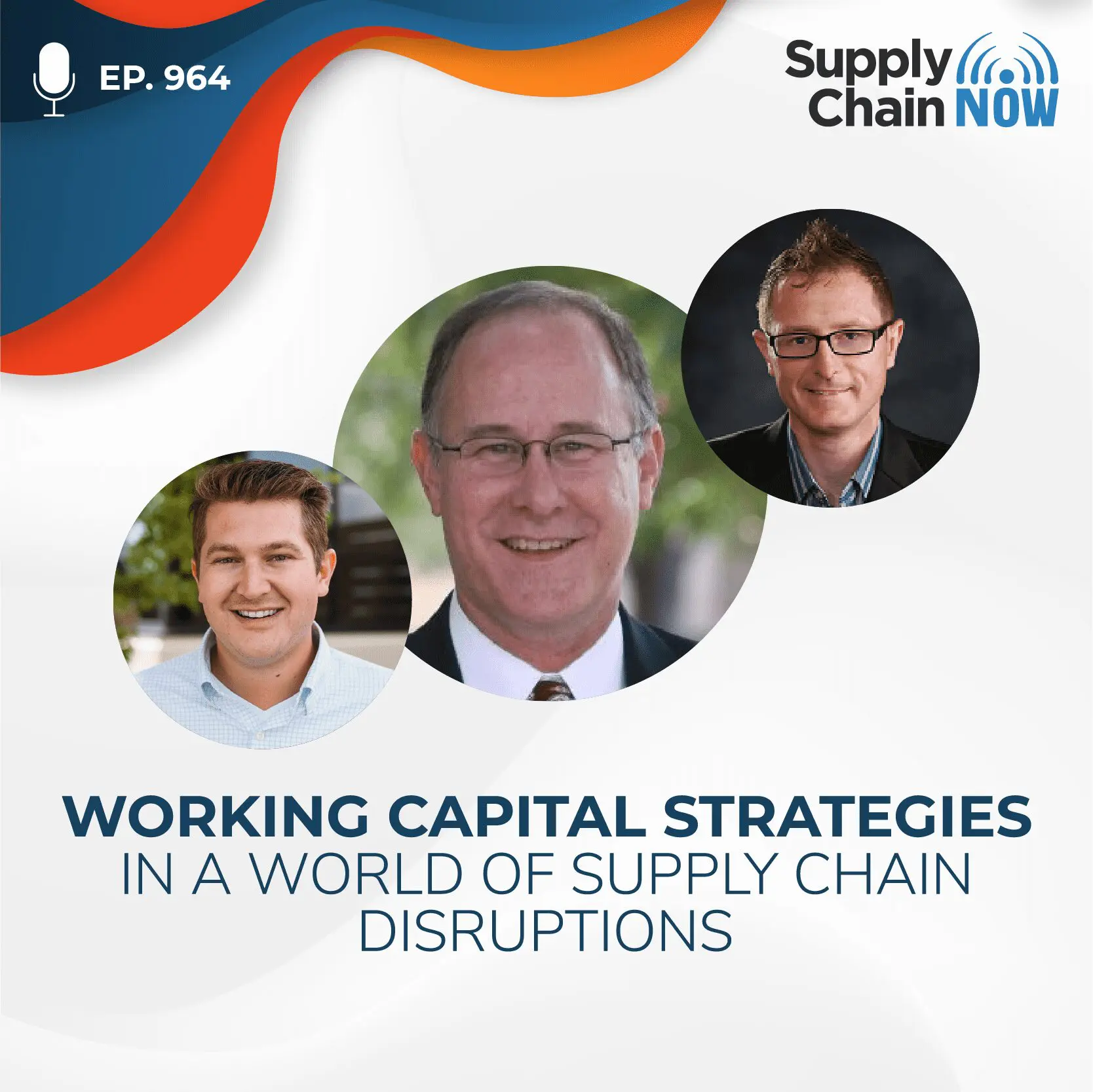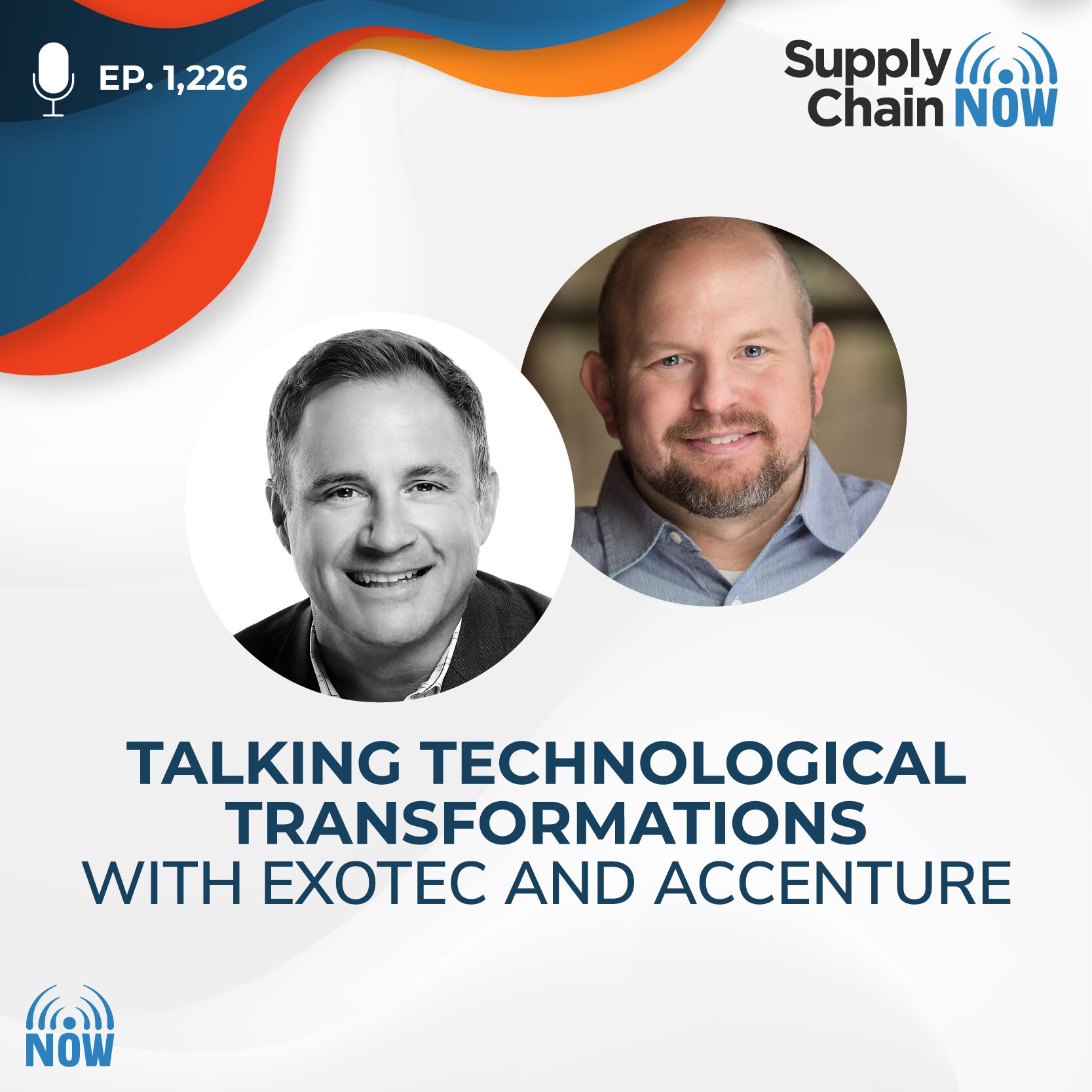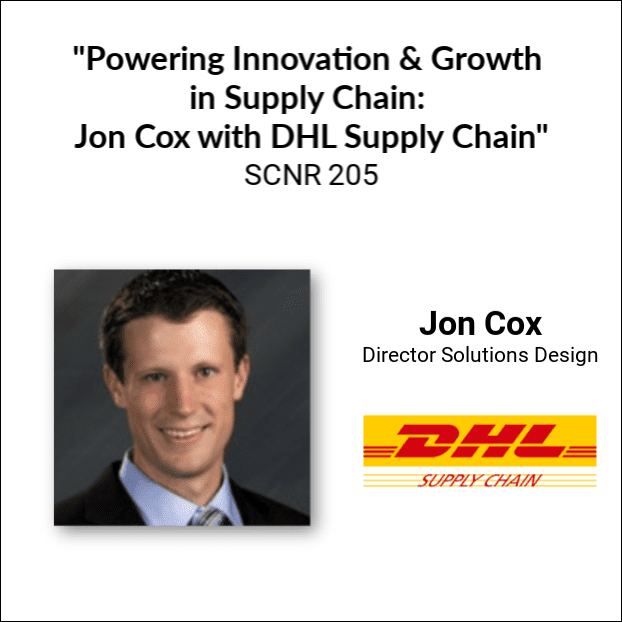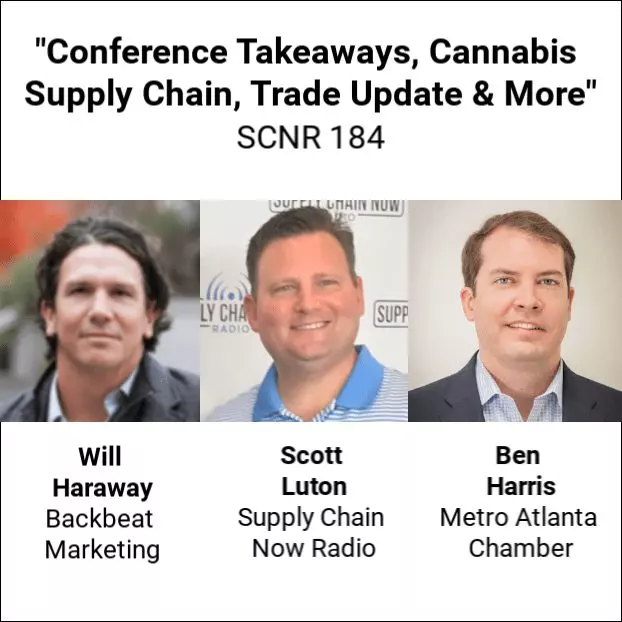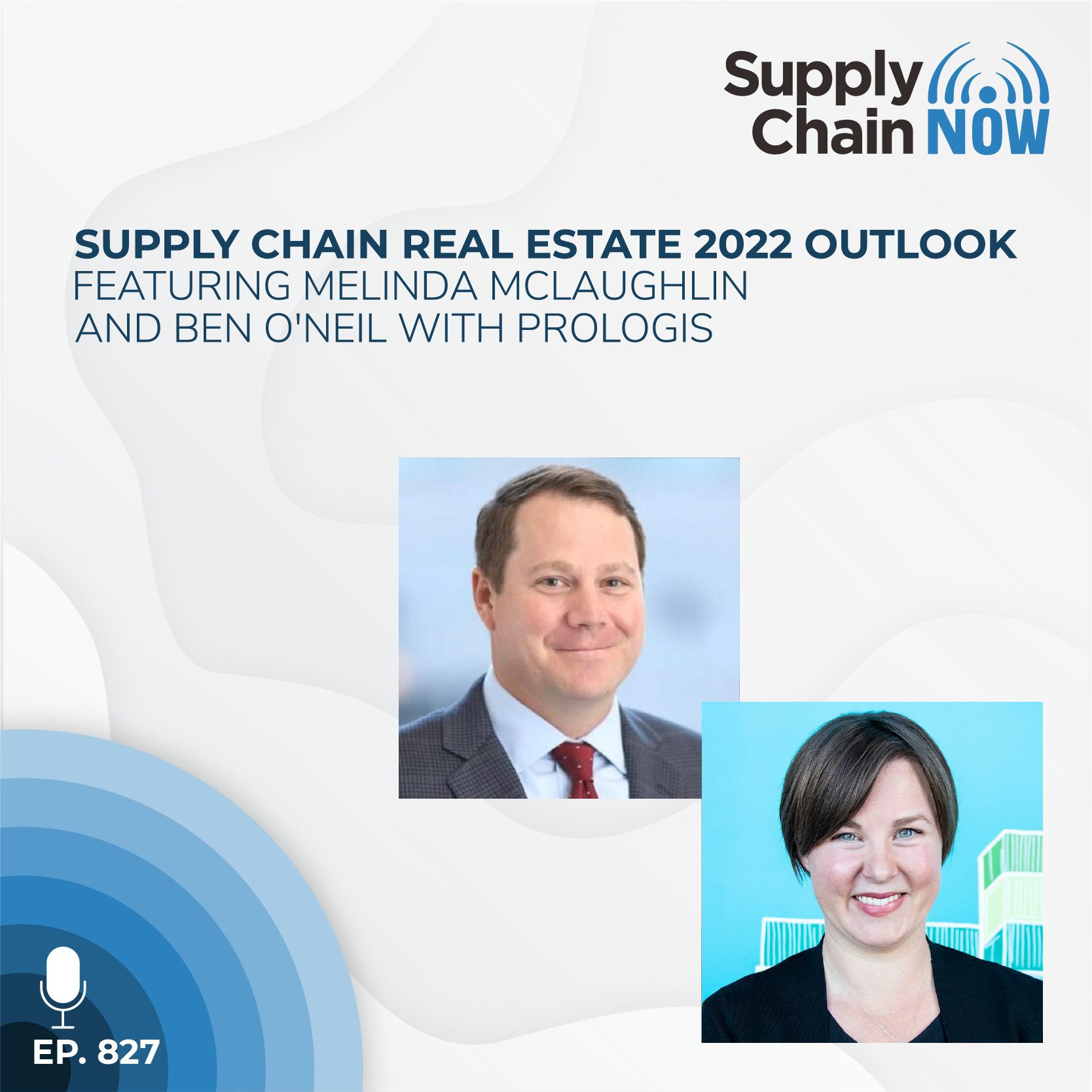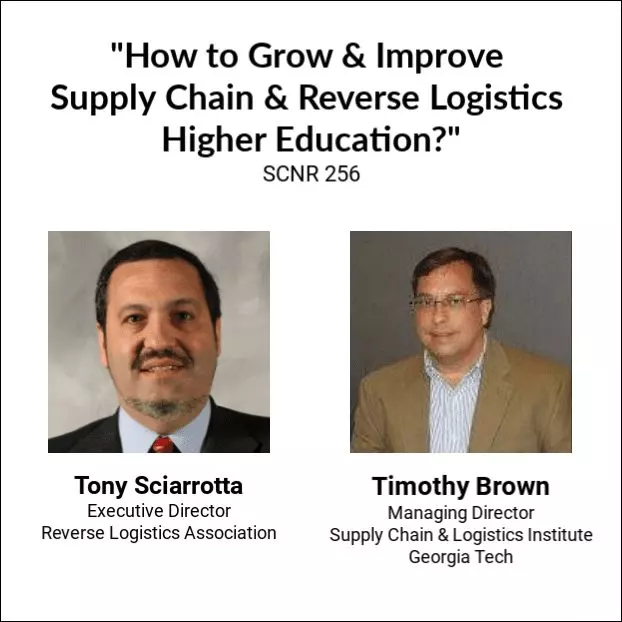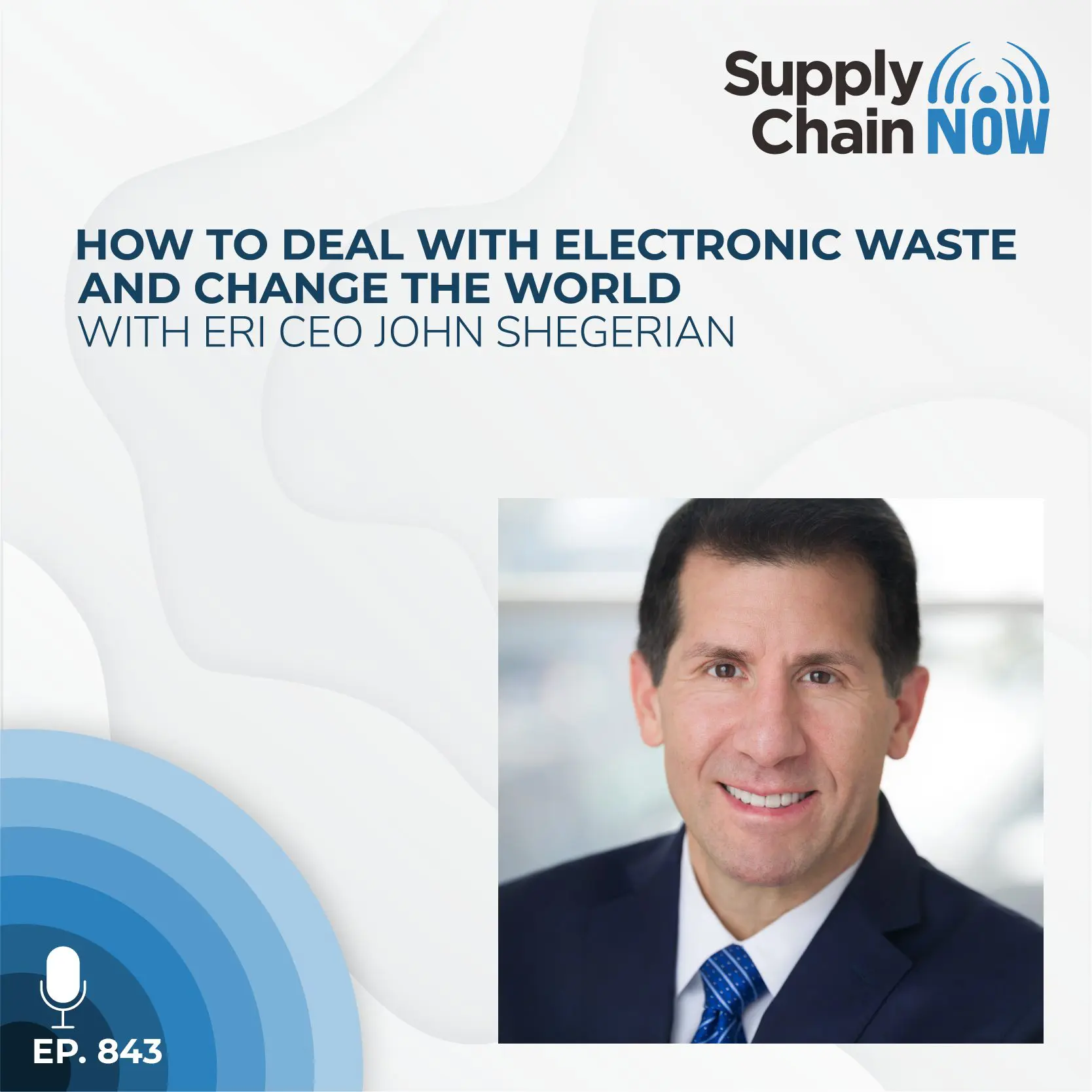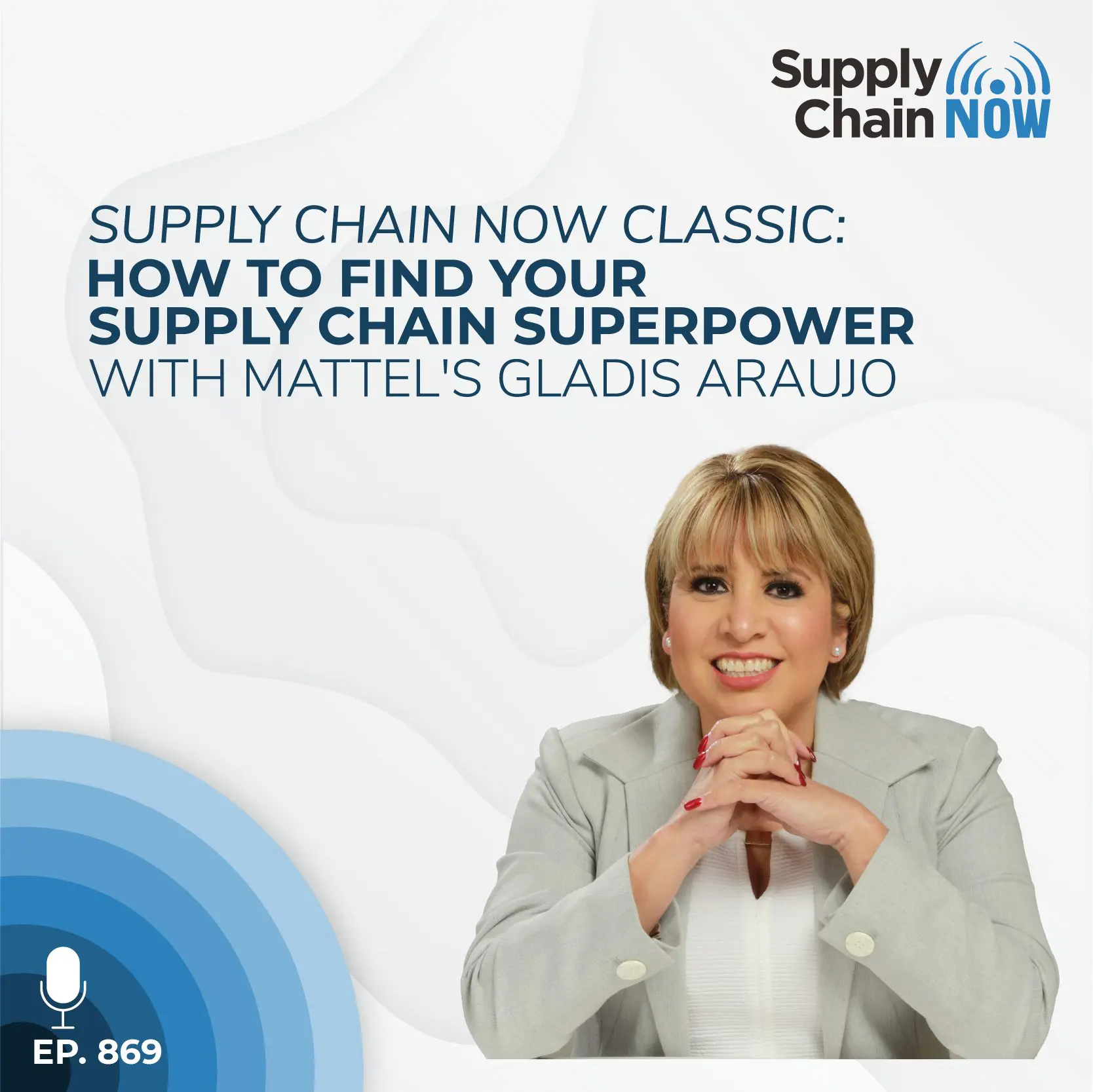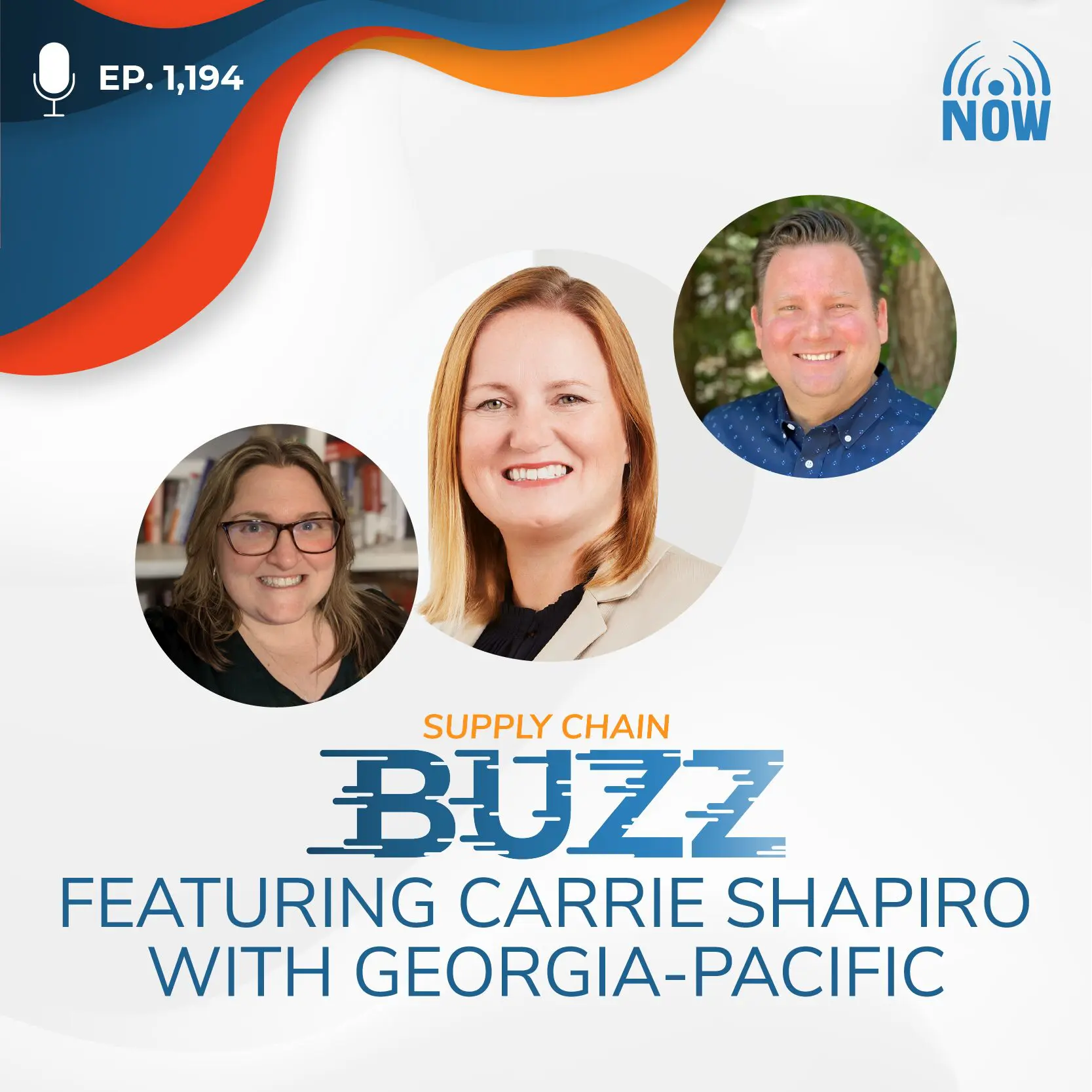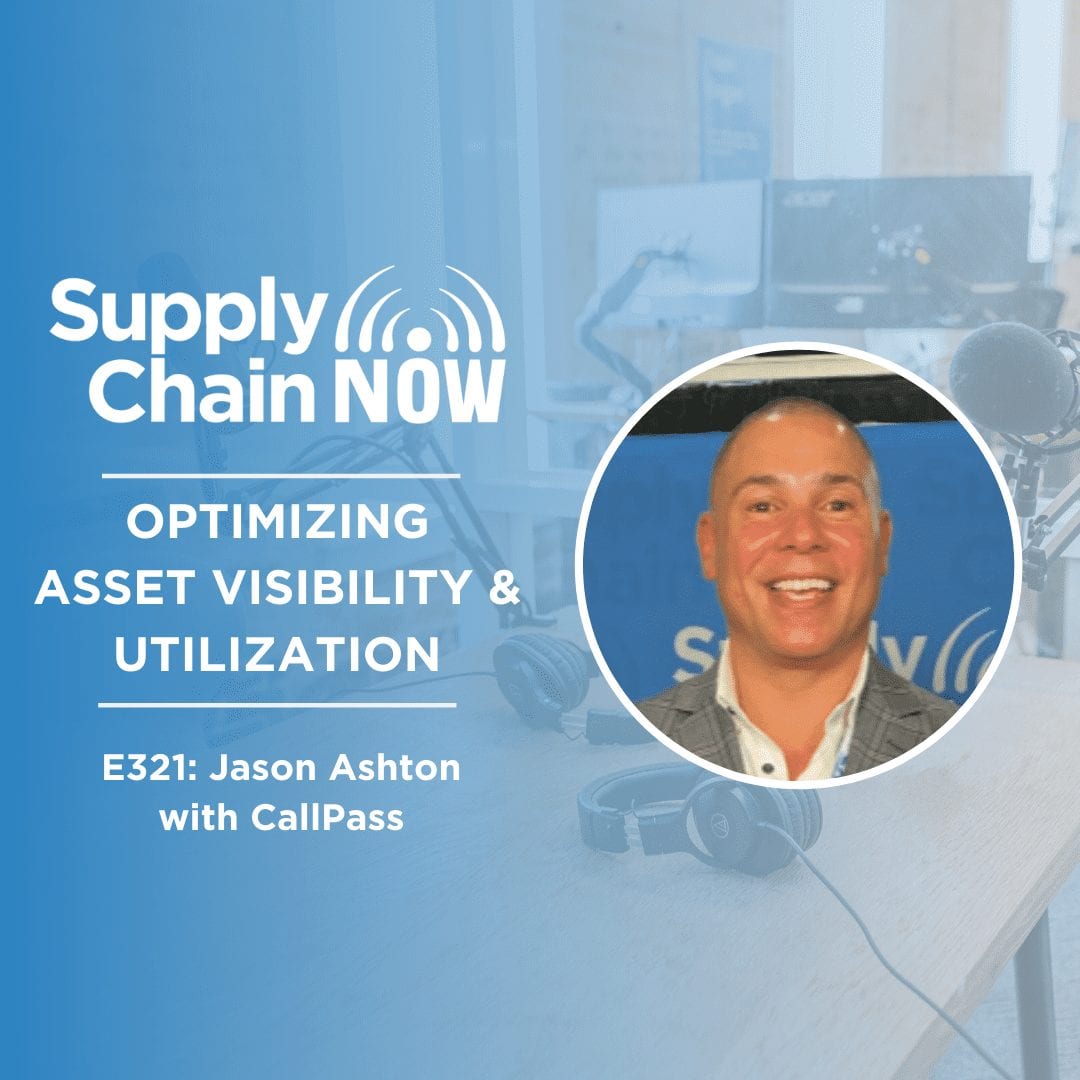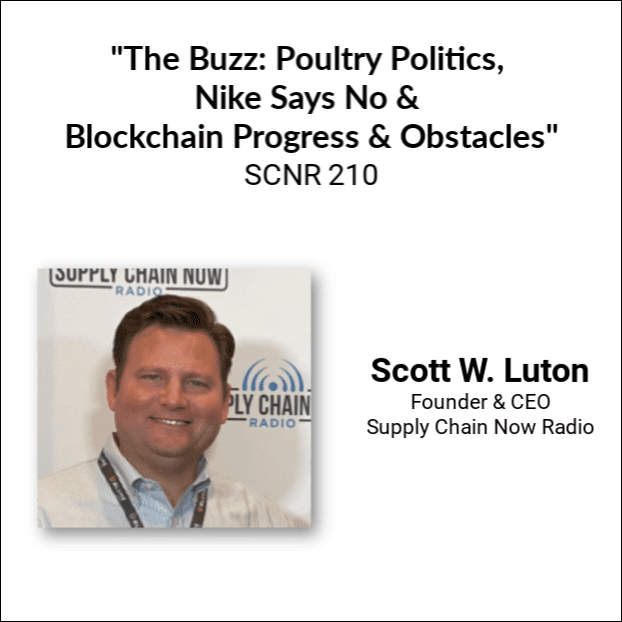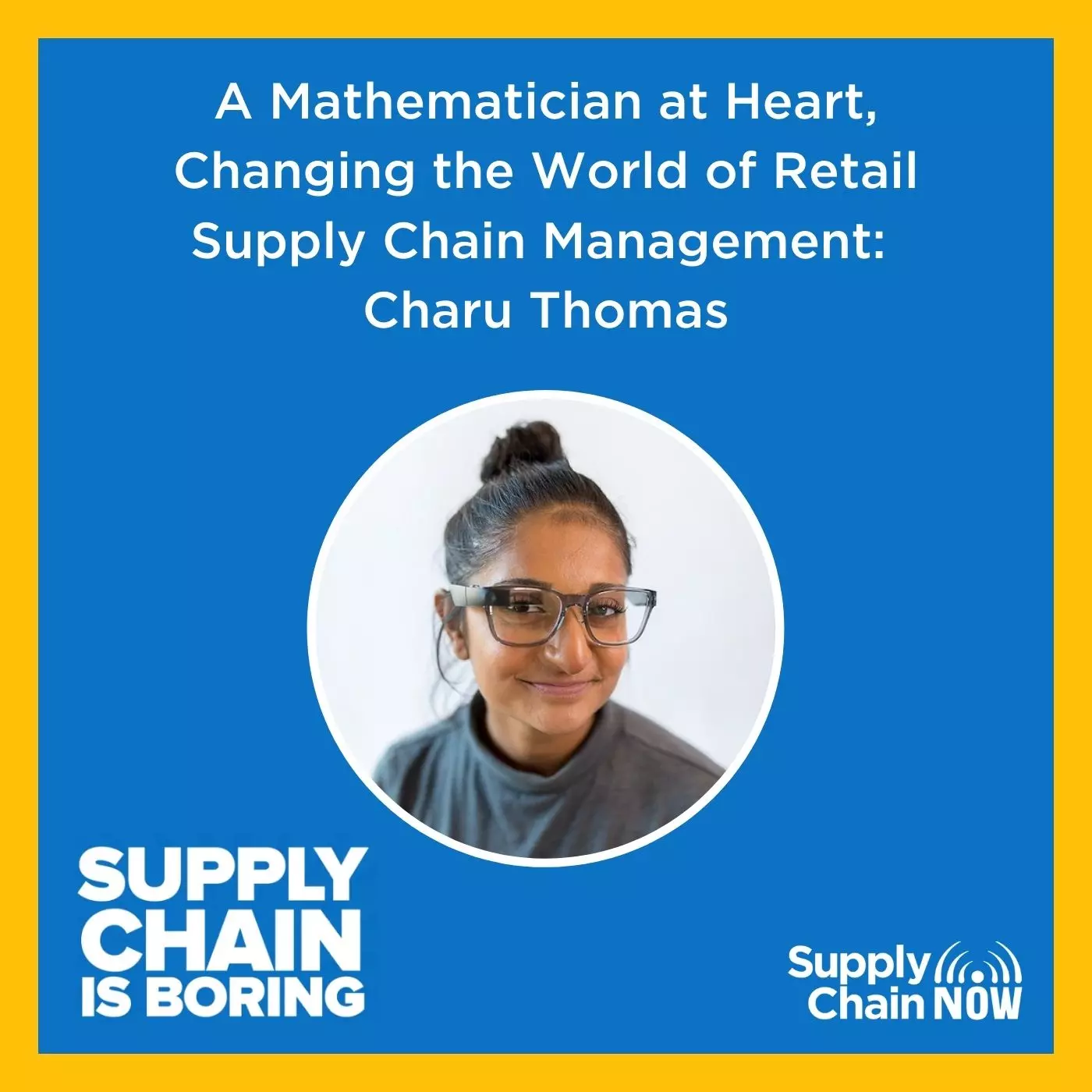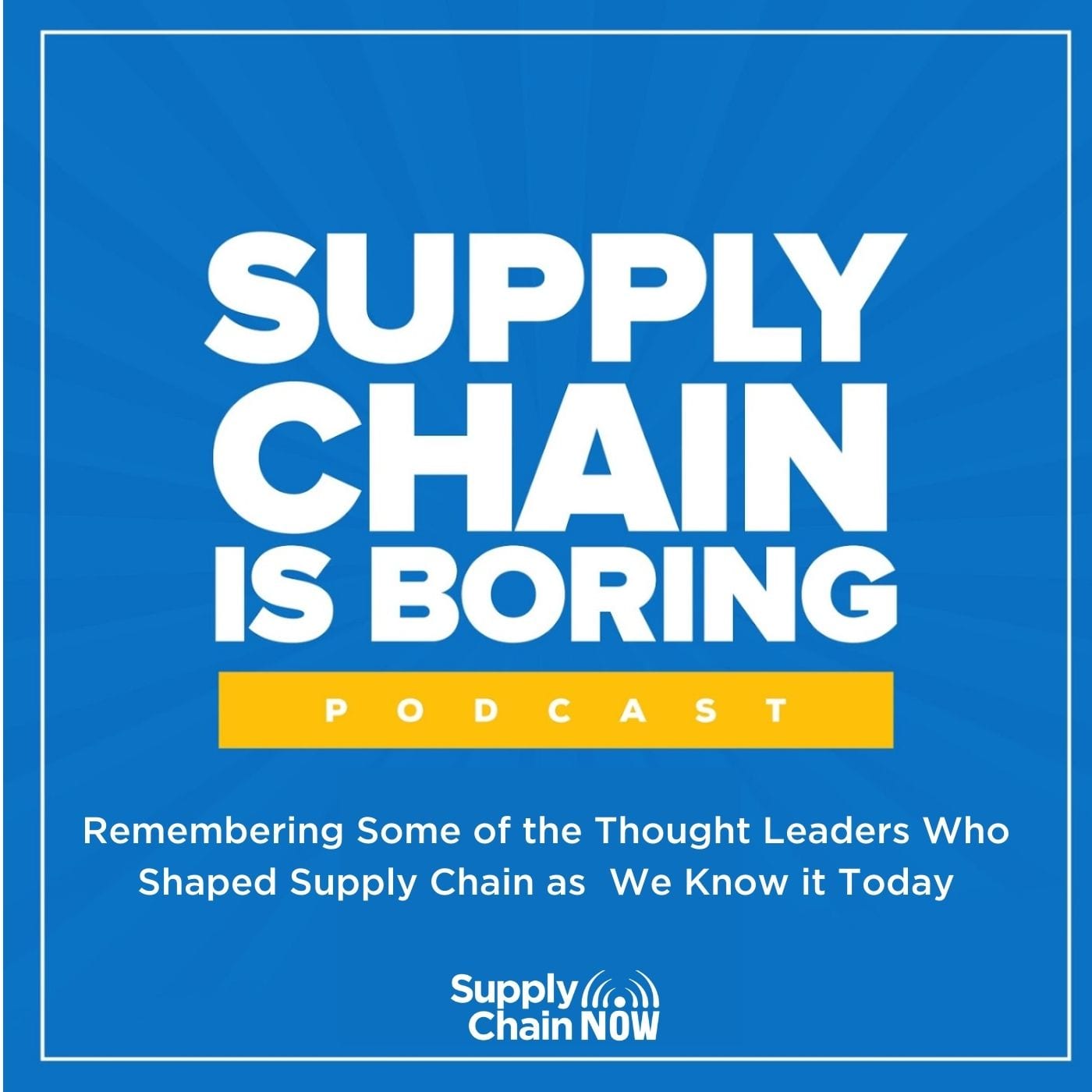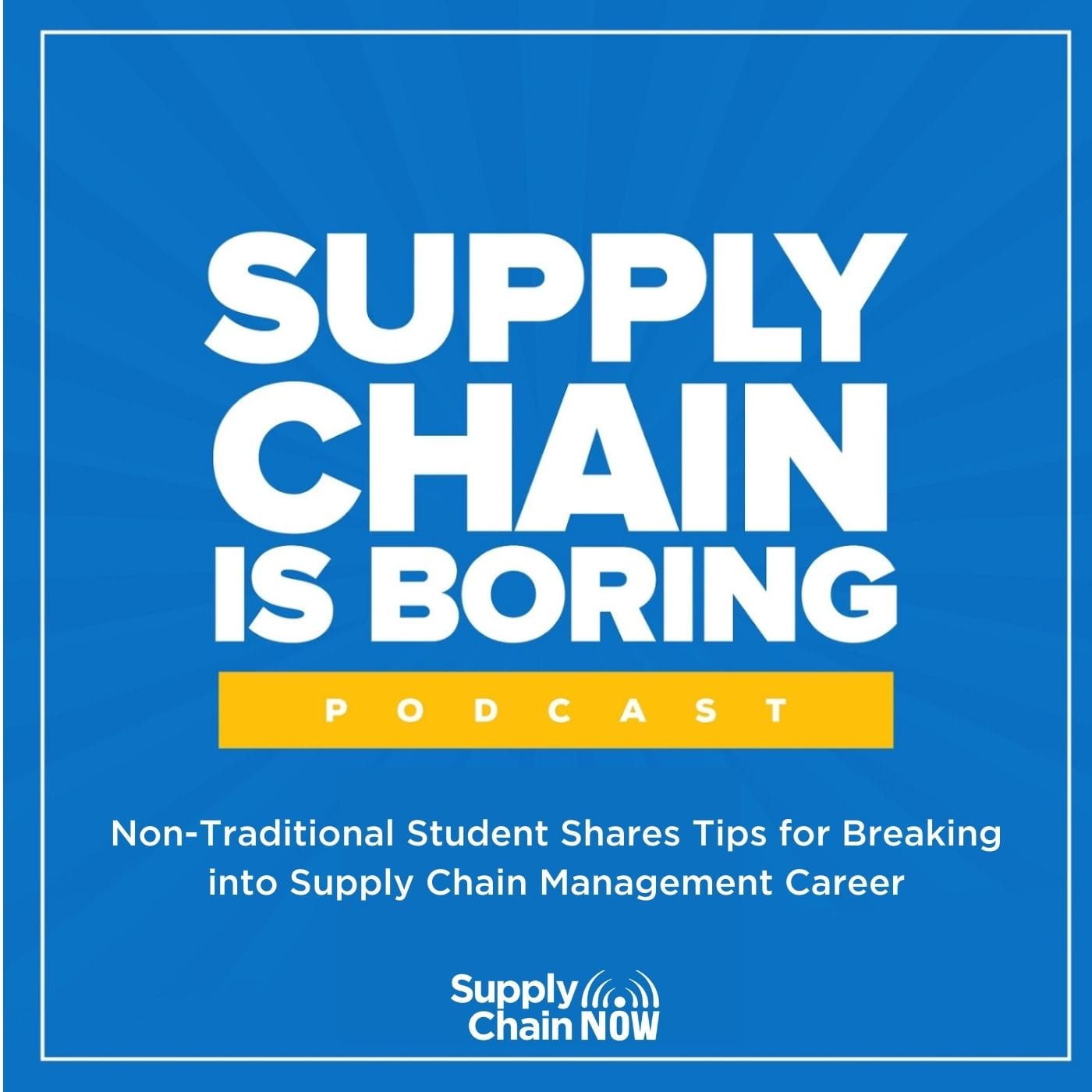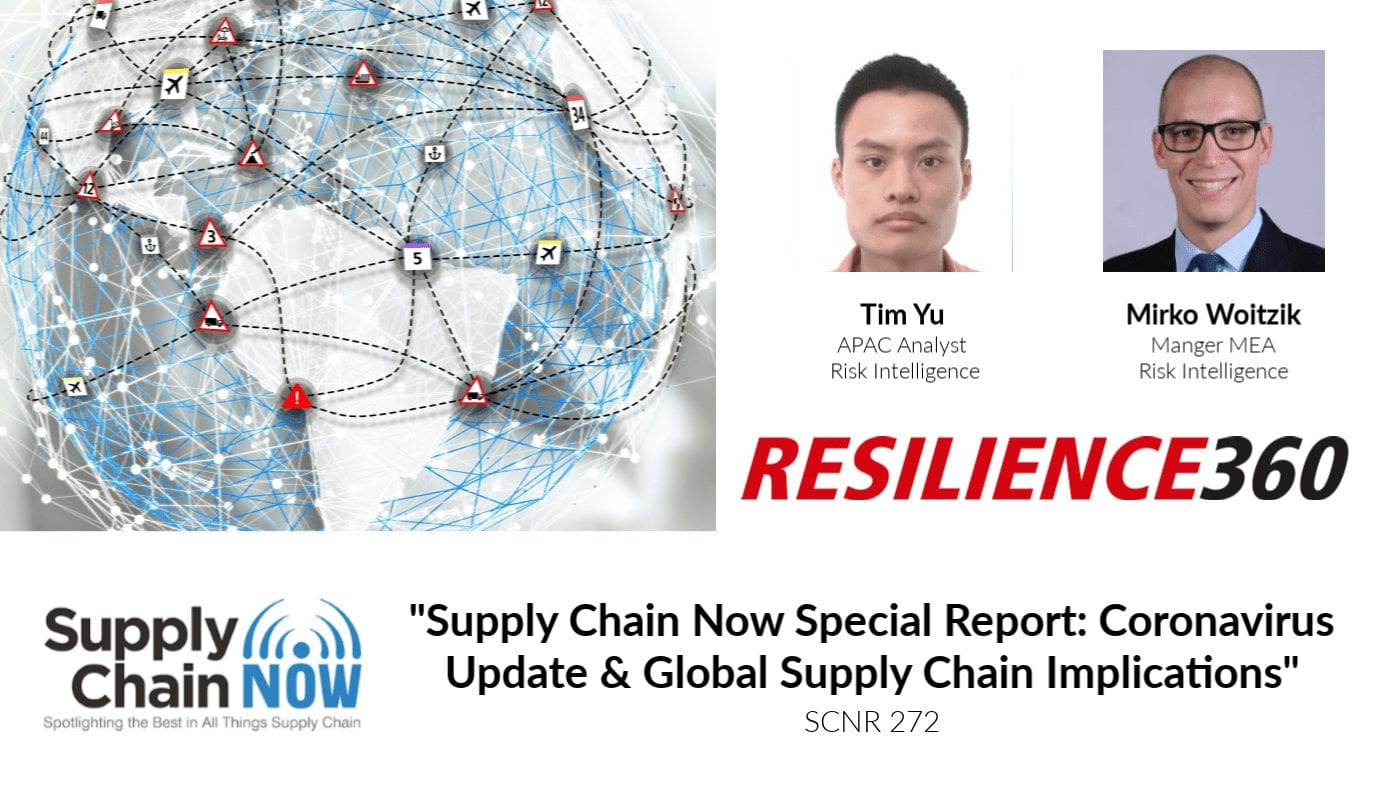
Episode Summary
“What we generally recommend companies to do in the short term is really to try to identify the key business partners or key suppliers or vendors that might be sitting in local area of the cities being shut down.”
– Mirko Woitzik, MEA Analyst at Resilience360
In this Supply Chain Now Special Report, we welcome two risk intelligence experts from Resilience360, Tim Yu (APAC Analyst) and Mirko Woitzik (MEA Analyst), provide an update on the coronavirus and the implications for global supply chains.
As Tim and Mirko point out to Supply Chain Now Host Scott Luton:
- It is currently difficult, not just to move people and goods in and out of China, but information as well.
- Companies and supply chain managers should think both long term and short term. Have an immediate plan but assume that these disruptions could continue for a while.
- Remember that the risk is not contained to China. This is especially true with suppliers or manufacturers that are in your supply chain who source from China themselves. If they had representatives traveling back and forth until recently, their teams and facilities (outside of China) may be impacted as well.
Episode Transcript
[00:00:13] Hey, good morning, Scott Luton Lu with your life for a special report on Supply chain now. Thanks for joining us here today. On today’s podcast, we’re going to provide an update on the ever evolving coronavirus. The epicenter of the virus, as many of our listeners may know, is Wunan, the capital of central China’s Hubei Province. Wu Hand has a population of over 11 million people, making it the old the seventh most populous Chinese city and one of the largest cities in the world. Froome is a global supply chain standpoint. Lu Hand is a major manufacturing and transportation hub. The Corona virus is already unfortunately killed over 170 people and more than 70 700 cases have been confirmed in mainland China and the virus has been spreading across Asia and really trust the rest of the world. In recent days, our thoughts and prayers are with those families impacted on this special edition of Supply chain. Now we’re going to gain the insights and updates from two global industry experts and analysts with the Resilience 360 team. Many audience members may be familiar with Resilience 360, a powerful platform that enables companies to visualize, track and mitigate risk and their supply chain it, which, you know, can be such a huge advantage germ both the, quote, normal days managing global supply chains and really especially helpful during worldwide crises such as what we’re seeing now.
[00:01:41] You can learn more at resiliant 360 dot com. So it’s welcome in our feature guests here today. First off, we have Tim Yu, a pack risk intelligence analyst with resiliant 360. Tim currently resides in Singapore and leads coverage on international trade, customs and regulatory policies impacting business operations, focusing on the APEC region for multinational clients across a variety of sectors. Good morning. Good morning, Scott. Great to have you with us here. And we’re joined by your colleagues. They Mirco WITSEC manager, your Europe, Middle East and Africa. Awesomer is a mere four risk intelligence at resiliant 360. Mirco currently resides in Belgium and has a wide array of international business experience, speaks five languages and leverages global supply chain risk expertise at Rosy’s 360, mainly focusing on the automotive and pharmaceutical industries. Good morning, Mirco. Good morning, Scott. Tim Moore and Mirco, thank you both for joining us. Especially, you know, during this ever evolving time where business and leaders and consumers worldwide are all looking for the latest updates and insights own the Corona virus. So, Merkur, let’s start with you. What is the current situation in the city of Suzanne, in the Hubei province and other regions in China in terms of Supply chain disruptions due to the virus outbreak?
[00:03:02] Thanks, Scott, for having us. And for asking these questions. I mean, obviously, it’s a it’s a really dramatic event sort of unfolding in front of our eyes, which is which is really getting worse by the day. And if you already introduced one and then sort of the importance of it in the introduction. But really right now, what is happening in one city of 11 million is really a total lockdown so that the whole city, you know, resembles a ghost town. It’s a major hospital. It’s a thriving everyday. But, you know, you don’t see any people on the road. Everything is shut down. There is a sort of police cars on the highway. You can go in and out of the city. The airport is closed. Railway stations are closed. So it’s it’s really in total lockdown. And it’s going to actually be extended to the whole province of Hubei in which one is located. So it’s really very, very difficult to texts information and if you want to get in and out. And so if you if you look at the wider region and sort of wider, so if China area, then you can apply that to different other regions that are also starting to sort of limit travel that are sort of limiting any kind of production any way at the moment, everything is still so shut down won’t because of the Chinese New Year holiday.
[00:04:21] So it’s kind of like a period of holidays that could resemble anything between Christmas and New Year in the U.S. or in Europe. And so really no one’s really working there. And the government really extended an exceptional move just just recently. This this national holiday by three days, which which which is really exceptional and a lot of other regions have taking further steps in, shutting down production and sort of preventing anyone from getting home to their region until February 9th. So for another nine days from now. So it’s really a traumatic situation. And the whole of China, a lot of countries that are neighboring China have started to sort of closed at. Yes. So you can think of Hong Kong in the south, but also in the west there is Kazakhstan and in the north there’s Russia and Mongolia. All of them have started to close their borders to prevent anyone from from getting in and out. And so this is impacting obviously a lot of cross-border movements as well.
[00:05:24] And the latest just the latest development since yesterday has been that most of the major international airlines anywhere in the world, they look, be they in the U.S., in Europe or in Asia. They have started to cancel flights in and out of China for another 10 days just to see what the situation is. And because they didn’t want any travelers being infected with this virus traveling and sort of spreading the virus across the world.
[00:05:49] And of course, with Supply chain now based here in Atlanta, we heard them this morning, how Delta’s certainly one of those airlines scaling flights in China back in while our priority in our focus certainly is on the human humanitarian side of this this crisis. Putting that aside for just a moment, let’s talk about the business implications. So, Tim, how important is Suzanne in terms of logistics and manufacturing operations? And then as a secondary question, if you could elaborate on some of the industries that have a significant presence there that might be particularly affected.
[00:06:27] Yeah. So I’d be happy to kind of elaborate a bit on that. I think first off and we’ve touched on this before, but obviously our thoughts and prayers are with the folks that are affected at the moment. It’s obviously a less than ideal situation. And there’s a lot of folks that are out there in the field that are working hard to get the situation in terms of kind of more of the the business aspect, I think. Of course, over the recent years, that one’s developed into a major manufacturing hub for particularly for high tech industries. So a lot of opto electronics centered semiconductor manufacturers are situated out there. It’s also home to one of the most advanced chip fabrication plants. So they make 3D NAND flash memory that’s used in our smartphones and computers. So that’s on kind of more of the high tech side, but it’s also more traditionally known as China’s equivalent of the Mall of Motor City. So it’s got significant manufacturing presence for domestic and international carmakers, but also major global auto parts suppliers as well. So that’s specifically from a manufacturing standpoint and I think also from a logistics standpoint, it’s situated on the Yangtze River. So it’s it’s located in central China. So it plays a pivotal role in terms of connecting, say, Shanghai or other coastal cities out east to other parts of the country as well.
[00:07:50] So not only from a maritime trading aspect, but also from from rail and also major roadways. A lot of these logistical routes that run through one and that’s where it plays a major role within within China and also for global manufacturers as well. And then also, in addition to Taiwan itself, there’s also a number of neighboring provinces or other provinces in other parts of China that are also being impacted as well. So different regions have different obviously many manufacturing facilities, some in some coastal provinces. There are some that have a number of major electronics suppliers that are situated out there. That’s the case for four Jiangsu province, but also Jurong Province, which is another province that’s situated on the East Coast as well. There’s a number of major Rod Rod ingredients that are used for the global farming industry. That in itself is basically some of the impact. That said, that’s currently happening at the moment has a lot of not just one, but also other regions of China being infected by essentially a bit of a crackdown in terms of the response to the Corona virus.
[00:08:55] So not only huge population center, but in terms of industrial and business capital as well. So, Mirco, back to you. So in a rather rather unusual circumstance for this, you know, technology laden world we live in today, it’s bit difficult to get information and updates, right? In fact, available information, as Tim alluded to, has been further limited due to the Lunar New Year holidays in China. Mirco, how were you able to gather the specific information on impacts on Logistics and production disruptions?
[00:09:30] Yes. Thanks, Scott. I mean, it’s a great question. I mean, everyone is really scrambling for information. I mean, you know, it feels like the whole world is watching China at the moment, but at the same time, sort of China really shuts down doing doing so. Louis Holliday’s I mean, it’s really not an exaggeration to say that. And all the businesses can plan for that. It’s a different time of the year because it’s so according to the moon calendar.
[00:09:55] So changes every year of whether it’s January or February, but sort of all the businesses can can sort of prepare for it. And it’s really, you know, it’s a given and everyone sort of expects it. But at this point, having this major crisis to break out while all of the businesses are shut down and also in terms of the government, I mean, there’s just skeleton staff everywhere because everyone the whole country is busily traveling home to to celebrate with family. It’s really, really difficult to get hold of anyone. And so what we do on the one hand is really reach out to our DHL network. Skeleton’s to. As I just mentioned. And so we have since Monday, actually regular conference calls with the people that are sort of still working, most of them actually from home at this point. So we have local staff in one that we’ve spoken to, but also in Shanghai and in other regions like Hong Kong, all of those major transportation hubs. And so we’ve been able to talk to them on a daily basis to really get the latest information. That always takes a while to trigger into Chinese media to be officially announced by the governments or so. So there we have really like. So we get the information at the source and they have told us about the difficulties of getting in and out of the city of, you know, everyone sort of walking around with masks and so on and maybe to just give like a small anecdote. So one of our colleagues with DHL with the data on that in Shanghai was saying that whereas Shanghai was not really impacted by anything for the first couple of days because it was really concentrated in two one.
[00:11:28] They were basically going on the highway. And since it’s holiday season, you know, there’s really no traffic, which is which is rare. And then two days later, basically, that was on Tuesday, basically, the government installed checkpoints on the major highways and closed some of them. So everyone had to two routes to be arrested and diverted through two major checkpoints, usually on sort of top with us on the highway. And both trucks and passenger traffic, everyone had to go through that through a checkpoint. And everyone had to wait for at least five to six hours to actually just go through this checkpoint, either going out of the city of Shanghai or going into the neighboring province. So with that sort of anecdotal, you can just imagine that Shanghai, which is not the center, as you mentioned, of the outbreak of this disease, is still kind of impacted then that and that you can sort of apply to any of the major cities in China. And then on the other hand, will we do a lot? We have 24 hour operations in terms of our analysts sort of being in the office. Obviously, Tim, you my colleague here is space in Singapore. I I’m based in Europe and we have colleagues in the US. So basically we can watch around the clock. What is going on and what kind of new either government notices or any type of media reports are coming out and usually they first get out in Chinese language and Mandarin or Cantonese. So as we have Chinese speakers in the team, Daryl of the first to jump on them and try to make sense of it and then sort of prepare our customers for this new information and inform them.
[00:12:55] So tell the Chinese government has extended the Lunar New Year holidays to February 2nd, as I think Marco alluded to. What do you expect to happen starting February 3rd and also the sheer extent of the disruption? Speak to that, if you would.
[00:13:12] I think that in the case of the Lunar New Year holidays, what we’re actually seeing right at this moment is actually a number of major cities and also provinces that have have actually even pushed back the date too timid mid mid-February. So actually, in the case of so some major metropolises, of course, Beijing, Shanghai and also Chongqing, which is another major city out west western China, they’ve announced that essentially that they’re pushing back their dates. And this is more or less intended to basically in hopes of basically mitigating further virus outbreaks. So with these particular notices, what we’re seeing is that essentially some particular parts of the country there are perhaps potentially hardest hit by the the outbreak. We’ve seen basically longer periods where essentially governments are ordered companies to not return to work from the Lunar New Year break. What we’ve also seen, though, as well is that essentially that when they’re referring to companies, there’s often exceptions. So things that are essential for for the current situation. So utilities, pharmaceutical companies or suppliers and also medical device or a supplier to companies that are exempted from this, but otherwise other companies may not. So in these fields might be facing different types of disruptions. So when we refer it, when we’re referring to disruptions, these can be things from discouraging workers, from returning to their work sites or factories or warehouses. They can also be additional delays in in when production might actually be able to start. So some companies may not be aware from our operational standpoint what the exact timeline that it might be because these these deadlines might actually be pushed back further depending on the situation. And of course, I think there’s disruptions to to two cargo deliveries and also restrictions to major transport routes. So in the case of them. So as I mentioned earlier as well, I think basically major roadways, seaport routes, also rail, air. These are things that are likely to be disrupted if these basically these notices are extended.
[00:15:22] Further to our listeners, we’re talking with Mirko Wouldtake. And Tim, you global business experts with RASYID 3/16, we’re talking about the coronavirus and its impact really across the globe, especially as relates to global supply chain. So, Mirco, if you could kind of continue what Tim is alluding to there, because the disruption isn’t just within China. Right. Are we anticipating significant disruption to operations outside of China?
[00:15:51] Yeah. I mean, that’s the that’s the big question that everyone’s asking right now. I mean, obviously, as you as you mentioned earlier, the epicenter is really in China. And I think everyone can see in terms of the the fatal impact that this virus has already had that China is really affected most. But, you know, due to a globalized world nowadays and sort of flights going in and out of the country on a daily basis, I mean, this has been going on for a week now and airlines have only started to, as you mentioned, Delta only start now to sort of scale back their operations. So there have been a lot of travelers from China or going into China, going out of China. In the meantime, so we anticipate really like a big impact as well that are a potentially big impact on overseas operations for for other companies that have, you know, that could be situated either in other countries in Asia, in the US, North America or Europe. And actually, the first case of of sort of disruption in terms of manufacturing has already happened earlier this week, two days ago, actually in Germany, close to Munich, which is which is a major German car manufacturing hub with BMW, for example, being being headquartered there.
[00:17:05] There they’re about 30 minutes from unique. There is a big company that supplies basically roof parts, like convertible parts for convertible roofs, took two cars and it’s one of the biggest in the world. It’s a German with what we call automotive supplier and sort of supply directly to a two manufacturers like FCA or the US or Ford. I mean, do they really supply almost everyone? And there they had a Chinese colleague that was coming from China doing a training just at the headquarters. And basically she was infected and she was sort of infecting without knowing anyone noticing she was infecting a couple of her colleagues doing the training at the company. And basically a couple of data that a couple of days later the company found out these were the first confirmed cases of of this coronavirus in Germany, which were all really located among the colleagues, which is which is really dramatic and close to Munich. And basically, the whole company has now been shut down. So there are a thousand people working at this company and everyone was sent home. There have been over 80 people under quarantine at the moment. They have to stay at home.
[00:18:15] They’re being monitored for any kind of symptoms. And an operations at the company are basically completely flat for at least five days. So for now, this will be until Sunday. And so this has been really the first case where overseas this is really start to impact companies and supply chains. Similarly, I think as as maybe a lot of people remember from from another outbreak a couple of years ago, the the SARS outbreak, SARS in 2003, which was really one of the maybe one of the latest biggest outbreaks before what happened, for example, in Singapore, was that there was only one worker at the plant that was making cell phones for Motorola. One worker that was affected, 305 workers being sent home. And the whole company and whole plant was being disinfected just because of that. And so really, if you think about the implications are now easy, it can be actually to transmit this virus from one person to another. I think everyone should really have contingency contingency plans in place to prepare for such an event at their site speed in North America or anywhere else.
[00:19:21] So it is a scary time for a lot of folks, and that’s not lost on us. You know, again, that the impact on the global population. Workforce. And from a humanitarian standpoint, it’s front and center. But as we continue to kind of put this in business perspective. Tim Mirco kind of alluded to some previous outbreaks, if you could continue there. How does this virus compare to previous breaks of the diseases in terms of supply chain disruptions from more of a macro level perspective?
[00:19:49] So we’re in the city that’s become infected essentially previously had been forecast for a growth rate of seven point eight percent GDP this year. And now that forecast is being reduced to only 6 percent this year. So I think that that in itself is quite a drastic predicament to draw a comparison to the SARS epidemic. What we saw was that if you did draw a specific comparison to that is that China and Hong Kong suffered an estimated 1.1 and 1.2 straight 2.6 percent drop in GDP respectively. So in terms of the economic impact, I think that there’s a there’s potential carrot, comparable kind of comparisons that we can draw with one with both cases. And I think that some from a supply chain or Logistics perspective, I think that particularly if we’re talking about ports in particular, what we saw during this ice epidemic was that’s generally for the most part, there’ll be an increase in disinfection operations. So I think that’s not only just disinfecting operations, but also labor shortages might actually impact productivity and also the reducing the normal honored trade that we might be accustomed to. So those are just kind of some brief points, but I think some disruptions that we might need to be looking up for.
[00:21:09] While staggering numbers are murka, what can let’s shift over to kind of some insights and best practices that both you and Tim can offer companies that are looking to kind of manage the situation as best they can and really mitigate the disruption to their supply chain. So, Mirco, what can companies do?
[00:21:28] It’s really I mean, in the short time we I think we have to separate and then maybe Tim Tim can supplement this to sort of talk a little bit about the long term forecast, the long term sort of preparations that companies can can adhere to, sort of prepare for such an event or other type of, you know, extreme events such as natural disasters or something and that sort of area. So what really companies what we generally recommend companies to do in the short term is really to try to identify the sort of your key business partners or your key suppliers of vendors that might be sitting in the area of being local. Look at it in the area without you knowing and really being affected by that. Did the lockdowns and the whole shutdown in China at this point? So really analyzing where those supplies are located, you know, be there. Winters, as I mentioned, or distributors, Keith distributors, that you’re expecting any type of, you know, goods from or supply and really see are they situated maybe in one or Hubei Province, which is obviously as I met, as we mentioned before, completely shut down? Or are they maybe in other parts that are that are less affected and maybe have less disruption than than the epicenter? And then on a second as a second step, what obviously should then follow is as an analysis of what your inventory is, what your sources, source suppliers and your stock taking sort of in your warehouses may be close to your manufacturing side to sort of see you.
[00:22:56] Okay. How long can you last? And is there if there is a disruption with any of your supplier in this area? Is there any way of securing more supply somewhere else, either from another supply in China or geographically elsewhere, be that in Asia or Europe or North America to really see, you know, what type of stock level you have and sort of what kind of alternative supply you would potentially need. Because one thing is certain, as Tim mentioned before, is that, you know, that this government, this government shutdown and the deadlines there are very unlikely to be shortened, but potentially likely to be extended. So companies would really prepare for prolonged shutdown and really see where they can secure the supply and the parts that they need. And at the third the third point that we usually tell companies to really take into account is really educating your staff. He can you on staff, but also educating maybe the staff with your suppliers, because a lot of this virus outbreak is about is what really taking precautionary measures to be able to sort of rein it in.
[00:24:06] As we talked about the example with the German automotive supplier where busto, it’s really about, you know, making sure that people that are may have symptoms or might have been exposed to someone with the infection that they are, you know, being sent home, that everyone is sort of taking really the precautionary measures that you can, because in the end, the calculation will be, you know, that there might be a number of. He’s a number of employees that are being on sick leave. But but that’s definitely a better situation. And then to find yourself with a with a hole plan, the factory that has to be shut down because the level of infections is just too high and you have to sort of disinfect the whole site. So from a operational standpoint of view, it makes sense. But also, obviously from the humans, then point of view is to really educate your staff and have everyone on the same page that this is really important and and hygiene is important, too.
[00:24:55] So shifting from kind of current scenario, planning to contingency planning, information gathering here in the short term. Tim, to moving towards more of a long term view, how can organizations better prepare for this type event in the bigger picture?
[00:25:11] Yeah, I think that’s in the bigger picture, of course. I think that it’s becoming more imperative to be able to sufficiently monitor disruptive supply chain risks. So I think that’s. And so it’s like the things that we’ve mentioned beforehand. So in terms of which regions or provinces are being subject to government shutdowns or lockdowns, which which Industrial areas might potentially be disrupted, what would be the Patel particular transport routes that might be impacted by the current response from the government to the Corona virus? These are things that actually have a practical impact on the ground level in terms of manufacturing, logistics networks. So that’s that’s one particular points that we often try to raise to our customers. And then in terms of other things as well. I think it’s also being mindful of dual sourcing strategies. So I think that’s what we mean by this, is that reducing the number of suppliers has become more of a norm in order to try to develop more strategic relationships with specific suppliers. But I think that given that the situation is evolving and the greater need and how the nature of supply chain risks are evolving over time, companies actually need to perhaps potentially consider taking in a cost benefit analysis.
[00:26:29] Just ask whether this added cost of sourcing from different regions and locations and alternative suppliers might actually be worthwhile for preventing future shutdowns. And I think that’s. And this is a point that Mirco is also alluded to as well on this podcast, but also trying to test out contingency plans in the event of supplier outages. So in the long term, of course, it’s it’s, of course, good to develop that strong business relationships fits Logistics providers or contract manufacturers that might be able to transport or manufacture similar or similar products in nearby regions or countries. So these are kind of just high level points that we try to raise with our customers and the insights that we try to provide, but as, of course, not only in the immediate term, but also in the long term as the tone of virus crisis evolves. Supply chain risks are becoming increasingly complex and we want to in in our case that resilience 360. We want to help the equiped, our customers side with the best knowledge and analysis that they can have found so that they can act on it.
[00:27:35] And maybe, Scott, just to just touch just that one more point if we have. So I mean, one interesting thing is because I think a lot of companies or a lot of your listeners can probably relate to this. This company, obviously, one of the biggest companies in the U.S., Apple, Apple and I was we were just recently reading about a startup. So if a dual sourcing strategy that Apple has and that, you know, also has been sort of put forward, obviously not with a corona virus, that for these such extreme scenarios, so extreme situations like this Corona virus outbreak. So they have for their major components, like the most important components that go into that product, like like the iPhone. They have a dual sourcing strategy both in terms of suppliers. So they would have to at these two suppliers making these these major products, but also that these suppliers will be sitting in different geographies, which is which is really interesting to see that obviously if there is an outbreak or maybe a natural disaster, that, you know, you you are exposed, but then at the same time, you have a backup. And and so for now, at least, a major media impact to their operations seems seems unlikely, but also that they have sort of developed these these sort of contingency plans for extreme cases.
[00:28:46] Really appreciate that. And really, Tim murka, I really appreciate in short order we have to move faster to gather your insights and the reporting and analysis that you provided.
[00:28:57] And I really appreciate y’all’s take, you know, offering up agnostic best practices and insights for all of our listeners. We’re Zee’s and 360. You know, both of you spoke to the power of information and the power of of kind of looking ahead and then looking at the big picture across these global supply chain that so many companies are involved in. Tim, of course, we’re very careful about that. No one wants to create a commercial here. But just in case for folks especially, we get past this current environment and things settle down a bit and they’re able to kind of do more harm. And then you get more proactive. How can our listeners learn more about Resilience 360?
[00:29:35] Yes. We also, of course, some, as you alluded to at the beginning of this podcast, can also reach a set at our website, of course, that resilience 360 dot com. We also have various social media accounts. We have a lectern page and also a Twitter page as well where we’re accessible. And that’s where we hope to kind of reach out and provide some of our our knowledge, not only on this case, but also different types of supply chain research around the world.
[00:30:01] Terrific. Well, Tim, with you being in Singapore and more, Marco, you being in Belgium, we wish you both all the best UPS and safe travels ahead. I really appreciate your insights here today. And we look forward to having you back home on the show and gather your perspectives as things continue to evolve. Thank you, Scott. Thank you for having us. So to our audience, we’ve been speaking with Tim. You a peak risk intelligence and now analyst and Mirco WITSEC manager of Ameerah Risk Intelligence at Resilience 360. Both Tim and Marko are with Resilience 360 Global Platform that offers a suite of solutions that enable intuitive visualization of supplier networks, tracks shipments across different modes and lanes and permits near Real-Time, monitoring of incidents capable of disrupting supply chains, which is really what we’re going through right now. So really appreciate Tim and Marco’s expert insights here. So to our audience. We’re going to keep our finger on the pulse. We move really quickly thanks to the team at Resilience 360. Put this episode together. Hopefully you found these insights, in some cases staggering and eye popping in terms of where we are both in the current term as well as kind of the historical perspective. So stay tuned. Be sure to check out our other cup coming events, replays for interviews, other resources at Supply Chain Now Radio dot.com funds where we get your podcast from onbehalf. The entire team Scott Luton here wishing you wishing each and every member of our audience all the best in the weeks ahead. Thanks for joining us. Stay tuned. Stay safe.
[00:31:35] Thanks everybody.
Featured Guests

Tim Yu currently resides in Singapore and leads the coverage on international trade, customs, and regulatory policies impacting business operations focusing on the APAC region for multinational clients from the tech, energy and chemicals, automotive and aerospace, retail, consumer, and life sciences and healthcare sectors. Tim publishes special reports and articles on key issues affecting global supply chains including the U.S.-China trade war, the impact of Japan-South Korea export controls on the semiconductor industry, and Chinese environmental and industrial safety policies.

Mirko Woitzik currently resides in Belgium and works for Resilience360 as a Risk Intelligence Manager for the EMEA region. He graduated with a Master’s in International Relations from the College of Europe with a scholarship from the German government. Afterwards, Mirko studied and worked as a consultant in regulatory affairs in China for three years. He is fluent in five languages, including Chinese, French, English, Italian and German. At R360, Mirko Leverages his global supply chain risk expertise within the automotive and pharmaceutical industries.
